Shows
 The Addiction PsychologistDr. Sudie Back - Prolonged Exposure for Substance Use Disorder and PTSDIn many clinical contexts, substance use disorder is oftentreated separately from posttraumatic stress disorder. Yet, these conditions commonly co-occur and are reciprocally determinant, meaning that the outcomes of a course of treatment for either condition might depend upon treating theother. On this episode, Dr. Sudie Back talks about the importance of treating co-occurring PTSD and substance use disorder simultaneously, and the prolonged exposure treatment, COPE, she developed with her colleagues to manage both disorders. Dr. Sudie Back is a professor, and the director of the NIH-sponsored DART research training program, in the Department of Psychiatry and Behavioral Sciences at...2025-07-151h 17
The Addiction PsychologistDr. Sudie Back - Prolonged Exposure for Substance Use Disorder and PTSDIn many clinical contexts, substance use disorder is oftentreated separately from posttraumatic stress disorder. Yet, these conditions commonly co-occur and are reciprocally determinant, meaning that the outcomes of a course of treatment for either condition might depend upon treating theother. On this episode, Dr. Sudie Back talks about the importance of treating co-occurring PTSD and substance use disorder simultaneously, and the prolonged exposure treatment, COPE, she developed with her colleagues to manage both disorders. Dr. Sudie Back is a professor, and the director of the NIH-sponsored DART research training program, in the Department of Psychiatry and Behavioral Sciences at...2025-07-151h 17 The Addiction PsychologistDr. Josh Grubbs - Behavioral AddictionsBehavioral addictions have increased in importance over the past few decades and are perhaps more relevant than ever with the legalization of sports betting across America. However, there is still debate about whether behavioral addictions exist. While some disordered behavior, such as gambling and gaming disorder, have recently received more widespread recognition (as demonstrated by inclusion or consideration in the DSM-5), others, such as sex or food-related addiction, remain controversial. What should we consider when categorizing behaviors as addictions, and how might categorizations impact science and practice? Dr. Josh Grubbs joins us to discuss the journey and complexities of...2025-03-311h 03
The Addiction PsychologistDr. Josh Grubbs - Behavioral AddictionsBehavioral addictions have increased in importance over the past few decades and are perhaps more relevant than ever with the legalization of sports betting across America. However, there is still debate about whether behavioral addictions exist. While some disordered behavior, such as gambling and gaming disorder, have recently received more widespread recognition (as demonstrated by inclusion or consideration in the DSM-5), others, such as sex or food-related addiction, remain controversial. What should we consider when categorizing behaviors as addictions, and how might categorizations impact science and practice? Dr. Josh Grubbs joins us to discuss the journey and complexities of...2025-03-311h 03 The Addiction PsychologistDr. Alexis Kuerbis - Substance Use and AgingThe world population is aging. In the United States alone, the population of older adults 65 and up is projected to nearlydouble by 2060, from 49 million in 2016 to 95 million people. This historic change in population demographics will require shifts in public health responses. In this episode, we spoke with Dr. Alexis Kuerbis about how older adults use substances, and the unique factors to consider when working with aging populations. Dr. Alexis Kuerbis is a Social Worker and Professor in the Silberman School of Social Work at Hunter College in the City University of New York and The Graduate Center at CUNY. D...2025-03-171h 26
The Addiction PsychologistDr. Alexis Kuerbis - Substance Use and AgingThe world population is aging. In the United States alone, the population of older adults 65 and up is projected to nearlydouble by 2060, from 49 million in 2016 to 95 million people. This historic change in population demographics will require shifts in public health responses. In this episode, we spoke with Dr. Alexis Kuerbis about how older adults use substances, and the unique factors to consider when working with aging populations. Dr. Alexis Kuerbis is a Social Worker and Professor in the Silberman School of Social Work at Hunter College in the City University of New York and The Graduate Center at CUNY. D...2025-03-171h 26 The Addiction PsychologistPolicy Brief: Dr. Lara Coughlin on SAMHSA Contingency Management Incentive ChangesOn this Addiction Psychologist segment, we talk to experts about new policy developments to get a better understanding of the implications for our work, our clients, and our personal lives. On this episode, we talk with Dr. Lara Coughlin about the science of contingency management, recent changes in incentive allowance for contingency management, and how these changes might impact practice. Dr. Lara Coughlin is an assistant professor in the University of Michigan Addiction Center and Department of Psychiatry at the University of Michigan Medical School, as well as the Director of the CHOICE lab, the Co-director of the Michigan...2025-03-1013 min
The Addiction PsychologistPolicy Brief: Dr. Lara Coughlin on SAMHSA Contingency Management Incentive ChangesOn this Addiction Psychologist segment, we talk to experts about new policy developments to get a better understanding of the implications for our work, our clients, and our personal lives. On this episode, we talk with Dr. Lara Coughlin about the science of contingency management, recent changes in incentive allowance for contingency management, and how these changes might impact practice. Dr. Lara Coughlin is an assistant professor in the University of Michigan Addiction Center and Department of Psychiatry at the University of Michigan Medical School, as well as the Director of the CHOICE lab, the Co-director of the Michigan...2025-03-1013 min The Addiction PsychologistDr. Kirsten Smith - What has been happening in the world of Kratom?Dr. Kirsten Smith joined us in June 2022 for a wonderful discussion about Kratom. In this episode, she updates us on the volatile changes that have occurred since our last discussion. Dr. Kirsten Smith is an Assistant Professor of Psychiatry and Behavioral Sciences in the Behavioral Pharmacology Research Unit at Johns Hopkins University. If you haven't heard the first episode, make sure to have a listen to get caught up to speed on Kratom!2025-02-241h 12
The Addiction PsychologistDr. Kirsten Smith - What has been happening in the world of Kratom?Dr. Kirsten Smith joined us in June 2022 for a wonderful discussion about Kratom. In this episode, she updates us on the volatile changes that have occurred since our last discussion. Dr. Kirsten Smith is an Assistant Professor of Psychiatry and Behavioral Sciences in the Behavioral Pharmacology Research Unit at Johns Hopkins University. If you haven't heard the first episode, make sure to have a listen to get caught up to speed on Kratom!2025-02-241h 12 The Addiction PsychologistDr. Lindsay Squeglia - The Developing Adolescent Brain and Substance UseAlthough risk of substance use disorder exists for anyone that uses substances, study after study shows that early initiation of substance use in adolescence is a strong predictor of later substance-related problems and is associated with higher risk . What is going on in the brain during adolescence, and how do substances affect it? Dr. Lindsay Squeglia discusses the development of the brain during adolescence and the risks of substance use during adolescence, and attempts to answer our questions about the chicken or the egg. Dr. Squeglia also talks about her efforts to create evidence-based psychoeducation programs about substance use...2024-12-091h 08
The Addiction PsychologistDr. Lindsay Squeglia - The Developing Adolescent Brain and Substance UseAlthough risk of substance use disorder exists for anyone that uses substances, study after study shows that early initiation of substance use in adolescence is a strong predictor of later substance-related problems and is associated with higher risk . What is going on in the brain during adolescence, and how do substances affect it? Dr. Lindsay Squeglia discusses the development of the brain during adolescence and the risks of substance use during adolescence, and attempts to answer our questions about the chicken or the egg. Dr. Squeglia also talks about her efforts to create evidence-based psychoeducation programs about substance use...2024-12-091h 08 The Addiction PsychologistDr. Jeremiah Weinstock - Gambling DisorderGambling continues to grow in popularity in the United States, particularly with the introduction of sport betting. Should we be concerned? Dr. Jeremiah Weinstock joins us to discuss prevalence of gambling disorder, differences between gambling and substance use disorders, and the potential implications o rapidly rising rates of gambling in the United States. Dr. Weinstock is a Professor and the Department Chair in the Department of Psychology at Saint Louis University. You can learn more about his work here.
2024-11-111h 15
The Addiction PsychologistDr. Jeremiah Weinstock - Gambling DisorderGambling continues to grow in popularity in the United States, particularly with the introduction of sport betting. Should we be concerned? Dr. Jeremiah Weinstock joins us to discuss prevalence of gambling disorder, differences between gambling and substance use disorders, and the potential implications o rapidly rising rates of gambling in the United States. Dr. Weinstock is a Professor and the Department Chair in the Department of Psychology at Saint Louis University. You can learn more about his work here.
2024-11-111h 15 The Addiction PsychologistDr. Michael Sayette - Alcohol and the Social ContextAlcohol is often consumed around others: at bars or clubs, social events, college parties, or dinner with friends. How does alcohol influence social connection, and vis-a-versa? Why are they so seemingly interconnected? In this episode, Dr. Michael Sayette discusses his research on alcohol's relationship with the social context and the clinical importance of understanding how the acute effects of alcohol influence social connection. Dr. Sayette is a Distinguished Professor in the Department of Psychology at the University of Pittsburgh. You can learn more about his work here.2024-10-071h 23
The Addiction PsychologistDr. Michael Sayette - Alcohol and the Social ContextAlcohol is often consumed around others: at bars or clubs, social events, college parties, or dinner with friends. How does alcohol influence social connection, and vis-a-versa? Why are they so seemingly interconnected? In this episode, Dr. Michael Sayette discusses his research on alcohol's relationship with the social context and the clinical importance of understanding how the acute effects of alcohol influence social connection. Dr. Sayette is a Distinguished Professor in the Department of Psychology at the University of Pittsburgh. You can learn more about his work here.2024-10-071h 23 The Addiction PsychologistDr. Tammy Chung - Social Determinants of Health and Racial DisparitiesSubstance use often initiates in adolescence, and an earlier age of first use is associated with a higher likelihood of lifetime problems. But, do risky behaviors carry the same risks for everybody? Dr. Tammy Chung discusses social determinants of health and racial health disparities in young people and highlights how factors in our society create disparities, resulting in more risk from substance use and other health behaviors for people in some groups than others. Dr. Tammy Chung is the Director of the Center for Population Behavioral Health and a Professor of Psychiatry at Rutgers University. Find out more about...2024-09-091h 02
The Addiction PsychologistDr. Tammy Chung - Social Determinants of Health and Racial DisparitiesSubstance use often initiates in adolescence, and an earlier age of first use is associated with a higher likelihood of lifetime problems. But, do risky behaviors carry the same risks for everybody? Dr. Tammy Chung discusses social determinants of health and racial health disparities in young people and highlights how factors in our society create disparities, resulting in more risk from substance use and other health behaviors for people in some groups than others. Dr. Tammy Chung is the Director of the Center for Population Behavioral Health and a Professor of Psychiatry at Rutgers University. Find out more about...2024-09-091h 02 The Addiction PsychologistDr. Denis McCarthy - Impaired DrivingAlcohol impairs motor activity and cognitive functioning that is critical for effective and safe driving, increasing risk of accident. In fact, approximately 1/3 of all traffic fatalities are alcohol-related. Why do some people drive after drinking despite these risks? Dr. Denis McCarthy discusses the history of impaired driving and policy, theories of impaired driving-related decision making, and pathways to prevention, intervention, and treatment. Dr. McCarthy also discusses cannabis-impaired driving and important distinctions between cannabis and alcohol. Dr. Denis McCarthy is the Middlebush Professor of Psychology at the University of Missouri. Learn more about his work here. 2024-08-221h 20
The Addiction PsychologistDr. Denis McCarthy - Impaired DrivingAlcohol impairs motor activity and cognitive functioning that is critical for effective and safe driving, increasing risk of accident. In fact, approximately 1/3 of all traffic fatalities are alcohol-related. Why do some people drive after drinking despite these risks? Dr. Denis McCarthy discusses the history of impaired driving and policy, theories of impaired driving-related decision making, and pathways to prevention, intervention, and treatment. Dr. McCarthy also discusses cannabis-impaired driving and important distinctions between cannabis and alcohol. Dr. Denis McCarthy is the Middlebush Professor of Psychology at the University of Missouri. Learn more about his work here. 2024-08-221h 20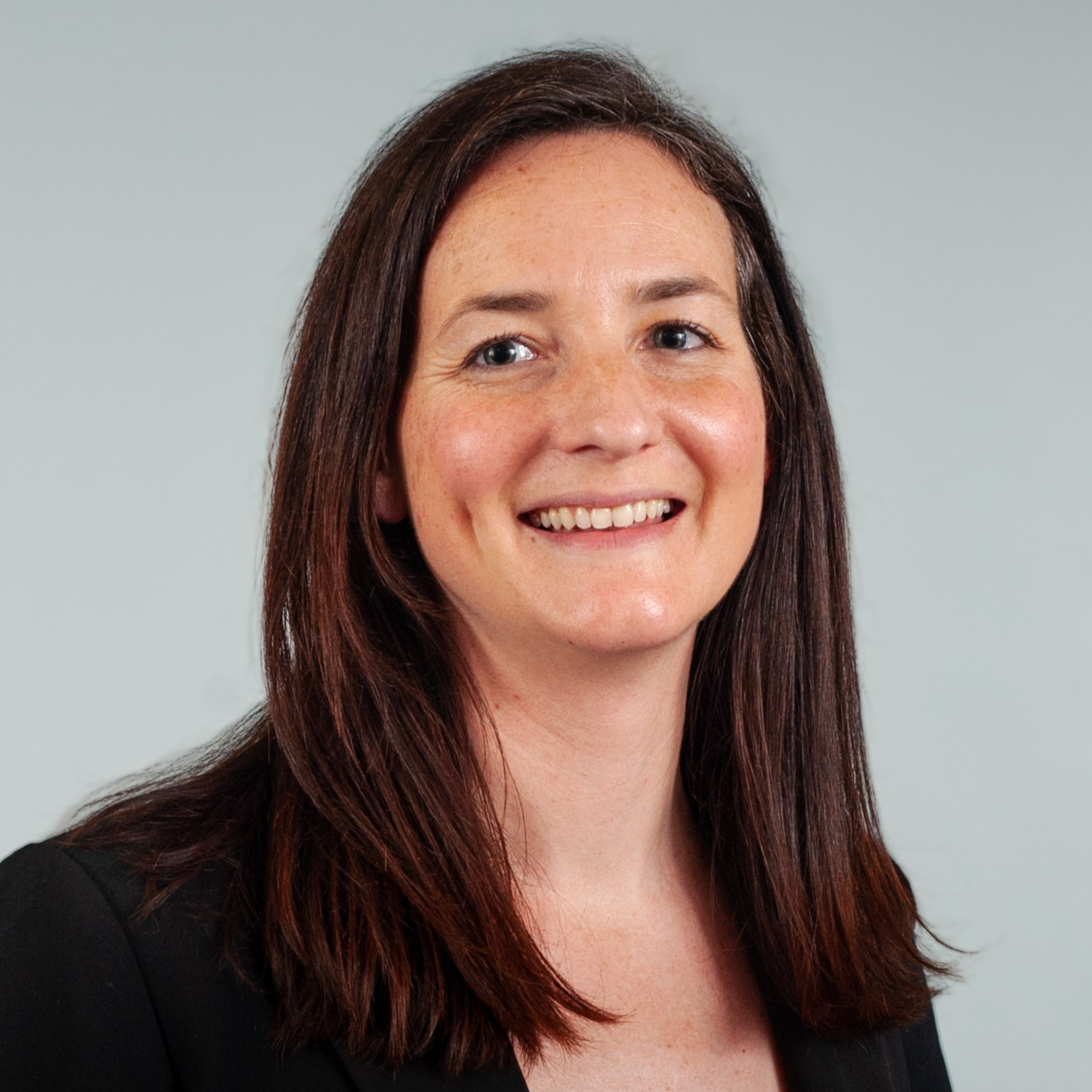 The Addiction PsychologistDr. Emily Hennessy - Recovery CapitalPeople attempting recovery face formidable challenges to successful sustained remission. Return to use depends upon the individual's access to recovery capital, or the collection of resources available that can bolster or improve recovery. In this episode, Dr. Emily Hennessy discusses the science of recovery capital and how improving recovery capital can enhance recovery and save lives. Dr. Emily Hennessy is the Associate Director of Biostatistics at the Recovery Research Institute and an Associate Director at the National Center on Youth Prevention, Treatment, and Recovery at Massachusetts General Hospital, as well as an Assistant Professor at Harvard Medical School.2024-07-151h 06
The Addiction PsychologistDr. Emily Hennessy - Recovery CapitalPeople attempting recovery face formidable challenges to successful sustained remission. Return to use depends upon the individual's access to recovery capital, or the collection of resources available that can bolster or improve recovery. In this episode, Dr. Emily Hennessy discusses the science of recovery capital and how improving recovery capital can enhance recovery and save lives. Dr. Emily Hennessy is the Associate Director of Biostatistics at the Recovery Research Institute and an Associate Director at the National Center on Youth Prevention, Treatment, and Recovery at Massachusetts General Hospital, as well as an Assistant Professor at Harvard Medical School.2024-07-151h 06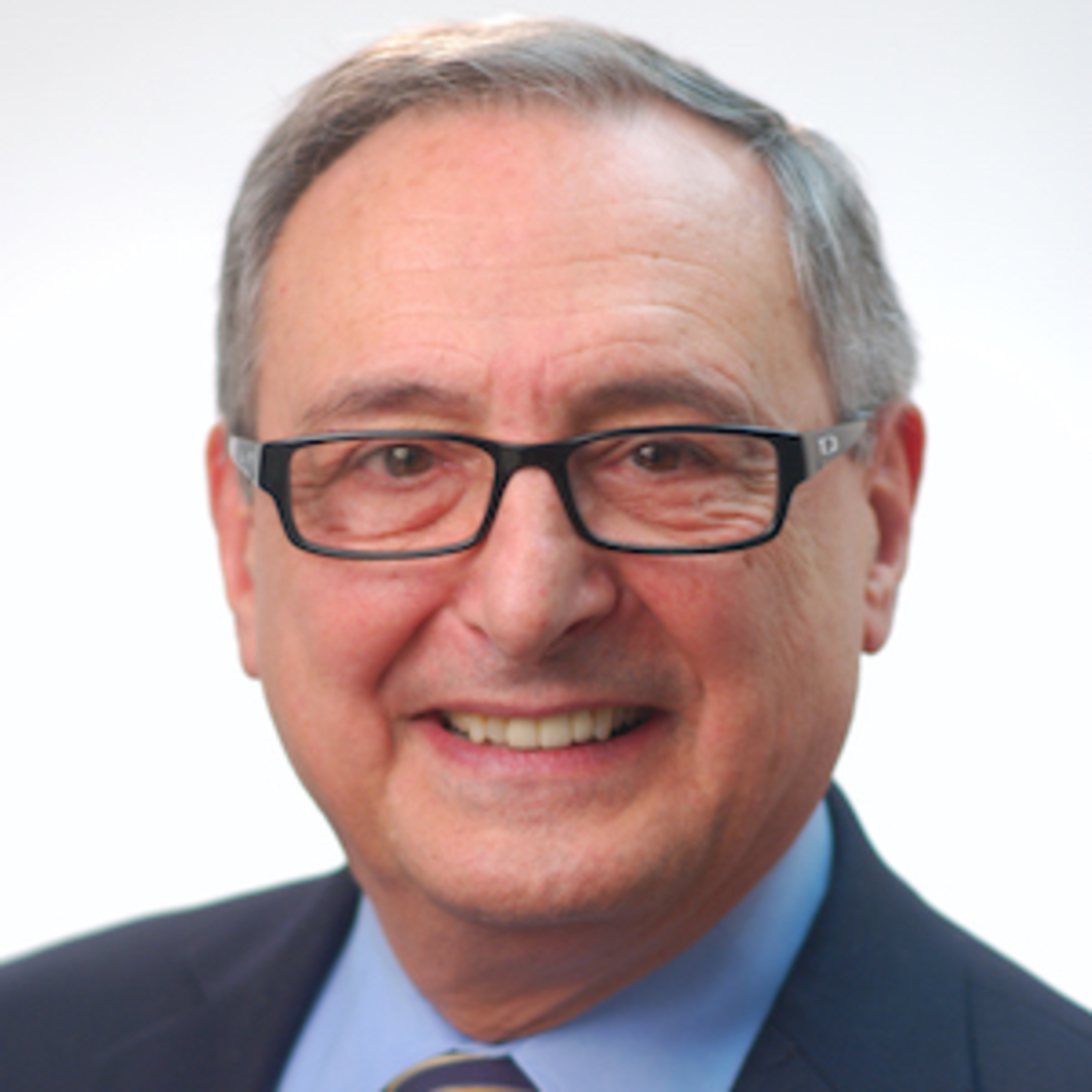 The Addiction PsychologistDr. Carlo DiClemente - Transtheoretical Model of Behavior ChangePeople range in their readiness to make changes to different behaviors. Processes occurring naturally in each stage differ across the spectrum of readiness to for behavior change. In this episode, we talk with Dr. Carlo DiClemente about the origins and development of the Transtheoretical Model of Behavior Change. This model has become a standard and common language for a generation of behavior change specialists working with people experiencing addiction, in addition to many other health-related behavior changes. Dr. DiClemente is an Emeritus Professor of Psychology the the University of Maryland Baltimore County and a former President of the the...2024-05-131h 09
The Addiction PsychologistDr. Carlo DiClemente - Transtheoretical Model of Behavior ChangePeople range in their readiness to make changes to different behaviors. Processes occurring naturally in each stage differ across the spectrum of readiness to for behavior change. In this episode, we talk with Dr. Carlo DiClemente about the origins and development of the Transtheoretical Model of Behavior Change. This model has become a standard and common language for a generation of behavior change specialists working with people experiencing addiction, in addition to many other health-related behavior changes. Dr. DiClemente is an Emeritus Professor of Psychology the the University of Maryland Baltimore County and a former President of the the...2024-05-131h 09 The Addiction PsychologistDr. Tom Horvath - SMART RecoveryPeople attempting recovery from addiction are best served when recovery can be achieved through multiple, diverse, pathways that fit their needs and recovery goals. Although the most commonly used recovery support service is Alcoholics Anonymous (or a similar Anonymous affiliated group), some object to core tenets or cultural elements and may benefit from alternative options. SMART Recovery is one example of an alternative mutual help group that was created to meet the needs of those who may benefit from a different pathway to recovery. In this episode, Dr. Horvath discusses the history, core tenets, structure, and evidence base for...2024-04-101h 09
The Addiction PsychologistDr. Tom Horvath - SMART RecoveryPeople attempting recovery from addiction are best served when recovery can be achieved through multiple, diverse, pathways that fit their needs and recovery goals. Although the most commonly used recovery support service is Alcoholics Anonymous (or a similar Anonymous affiliated group), some object to core tenets or cultural elements and may benefit from alternative options. SMART Recovery is one example of an alternative mutual help group that was created to meet the needs of those who may benefit from a different pathway to recovery. In this episode, Dr. Horvath discusses the history, core tenets, structure, and evidence base for...2024-04-101h 09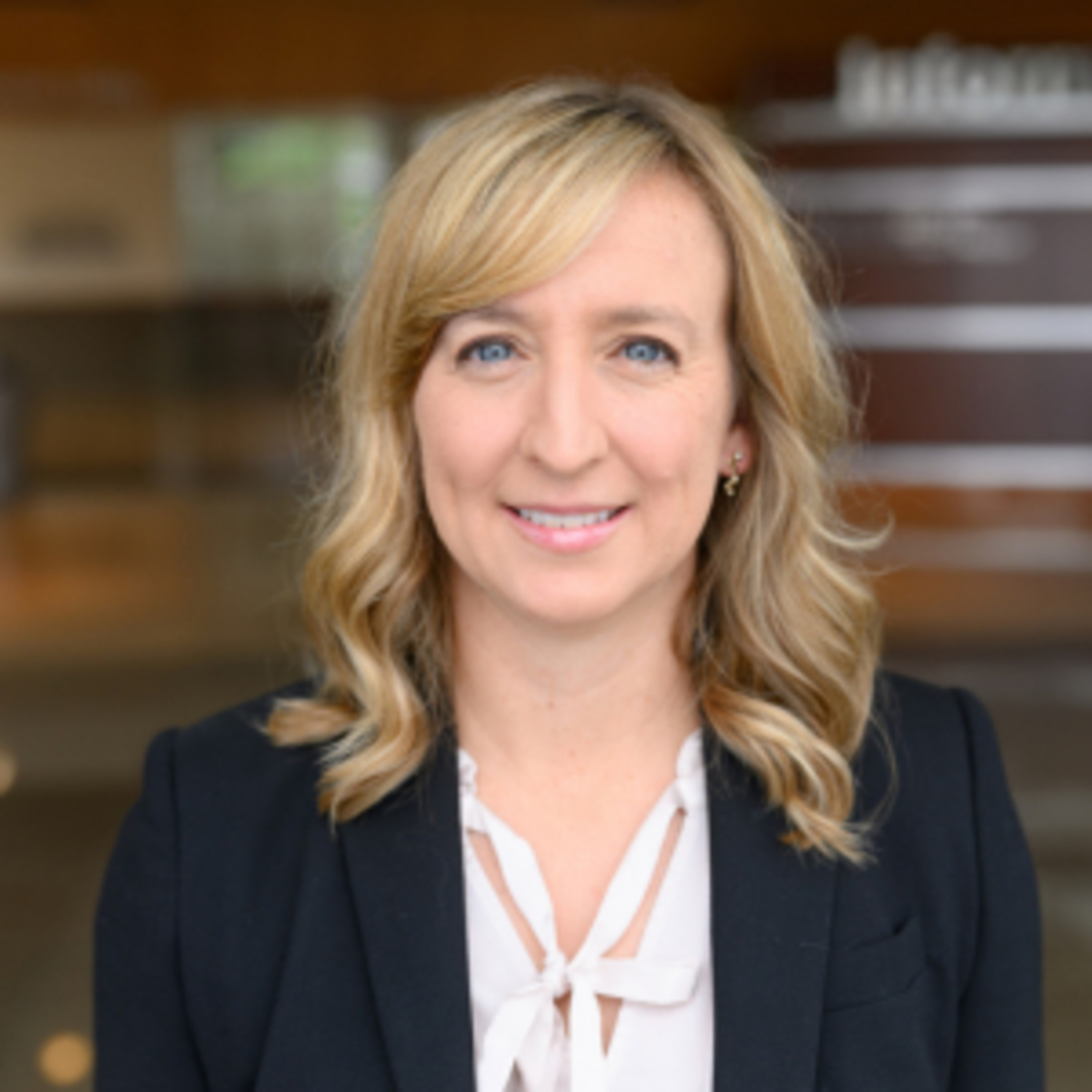 The Addiction PsychologistDr. Cassandra Gipson - XylazineIn the past few years, a novel adulterant, Xylazine, has emerged in the illicit opioid drug supply. Between 2020 and 2021, there was a more than 1000% increase in xylazine-positive overdose mortalities in the United States from 2020 to 2021. What is Xylazine? How does it work? Why has it emerged in the supply? Dr. Cassandra Gipson-Reichardt discusses emerging literature on Xylazine and answers our questions on this episode of the Addiction Psychologist podcast. Dr. Gipson is an associate professor in the department of pharmacology and nutritional sciences at the University of Kentucky.2024-03-1158 min
The Addiction PsychologistDr. Cassandra Gipson - XylazineIn the past few years, a novel adulterant, Xylazine, has emerged in the illicit opioid drug supply. Between 2020 and 2021, there was a more than 1000% increase in xylazine-positive overdose mortalities in the United States from 2020 to 2021. What is Xylazine? How does it work? Why has it emerged in the supply? Dr. Cassandra Gipson-Reichardt discusses emerging literature on Xylazine and answers our questions on this episode of the Addiction Psychologist podcast. Dr. Gipson is an associate professor in the department of pharmacology and nutritional sciences at the University of Kentucky.2024-03-1158 min The Addiction PsychologistDr. Katie Witkiewitz - Mindfulness-based Relapse PreventionMany with substance use disorders make recovery attempts, whether through abstinence or reduction goals. However, some level of return to previous levels of use are relatively common, and treatments developed over the past four decades have typically included elements focused on relapse prevention. However, this was not always the case. Dr. Katie Witkiewitz discusses the history of relapse prevention and her work in the space of mindfulness-based relapse prevention. She also discusses recent conversations about the phrase "relapse": what does it mean, and how is it captured in scientific studies? Dr. Witkiewitz is the Director of the Center on...2024-02-141h 24
The Addiction PsychologistDr. Katie Witkiewitz - Mindfulness-based Relapse PreventionMany with substance use disorders make recovery attempts, whether through abstinence or reduction goals. However, some level of return to previous levels of use are relatively common, and treatments developed over the past four decades have typically included elements focused on relapse prevention. However, this was not always the case. Dr. Katie Witkiewitz discusses the history of relapse prevention and her work in the space of mindfulness-based relapse prevention. She also discusses recent conversations about the phrase "relapse": what does it mean, and how is it captured in scientific studies? Dr. Witkiewitz is the Director of the Center on...2024-02-141h 24 The Addiction PsychologistDr. Bill Miller - Motivational InterviewingIn general, most people have some degree of ambivalence towards behavior change. Whether reducing television in the evenings, eating less chocolate, or deciding to limit or abstain from alcohol, most people can identify reasons they would prefer to maintain the status quo and reasons to make a change. How can one move from ambivalence to action? Dr. Bill Miller discusses the origins and key tenets of Motivational Interviewing, an approach grounded in Humanistic psychology to help create a safe space for people to explore their ambivalence and consider change. Dr. Bill Miller is an Emeritus Distinguished Professor of Psychology...2023-12-211h 18
The Addiction PsychologistDr. Bill Miller - Motivational InterviewingIn general, most people have some degree of ambivalence towards behavior change. Whether reducing television in the evenings, eating less chocolate, or deciding to limit or abstain from alcohol, most people can identify reasons they would prefer to maintain the status quo and reasons to make a change. How can one move from ambivalence to action? Dr. Bill Miller discusses the origins and key tenets of Motivational Interviewing, an approach grounded in Humanistic psychology to help create a safe space for people to explore their ambivalence and consider change. Dr. Bill Miller is an Emeritus Distinguished Professor of Psychology...2023-12-211h 18 The Addiction PsychologistDr. Jeff Boissoneault - Chronic Pain and Substance UseChronic pain commonly co-occurs with substance use disorder and may get in the way of recovery goals and valued living. Despite this, chronic pain can go untreated and unmanaged in treatment settings, and many people with substance use disorders struggle to get treatment for pain due to addiction stigma. Dr. Jeff Boissoneault provides an overview of the intersection between pain and substance use and makes the case for why scientists and clinicians should prioritize measuring and treating chronic pain. Dr. Boissoneault is an associate professor in the department of anesthesiology at the University of Minnesota Medical School.
2023-12-131h 15
The Addiction PsychologistDr. Jeff Boissoneault - Chronic Pain and Substance UseChronic pain commonly co-occurs with substance use disorder and may get in the way of recovery goals and valued living. Despite this, chronic pain can go untreated and unmanaged in treatment settings, and many people with substance use disorders struggle to get treatment for pain due to addiction stigma. Dr. Jeff Boissoneault provides an overview of the intersection between pain and substance use and makes the case for why scientists and clinicians should prioritize measuring and treating chronic pain. Dr. Boissoneault is an associate professor in the department of anesthesiology at the University of Minnesota Medical School.
2023-12-131h 15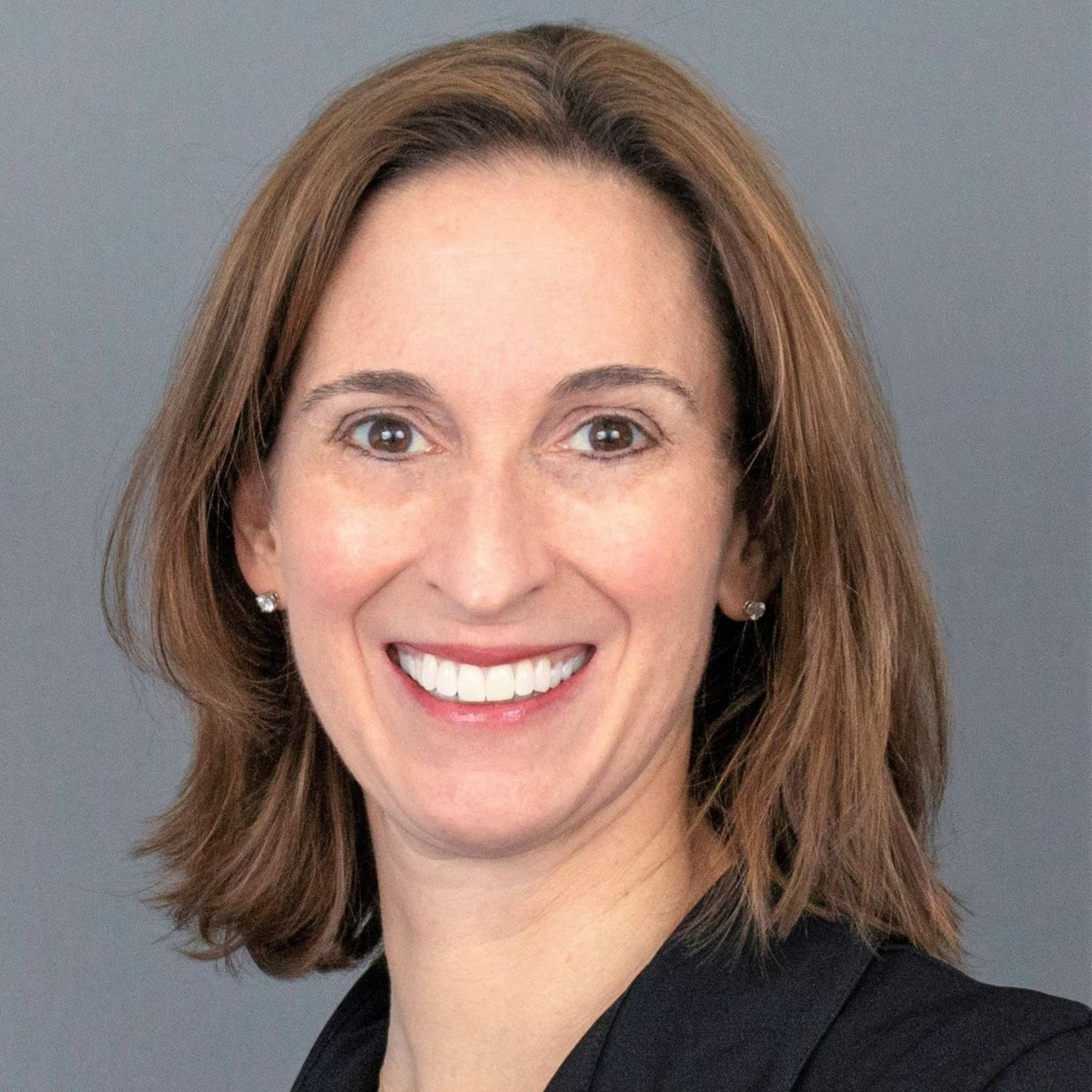 The Addiction PsychologistDr. Stacey Daughters - Reward Processing and the Intersection between Neuroscience and Psychosocial TreatmentsDespite some consequences, substances can provide immediate and certain reward in the different forms, including but not limited to euphoria, pain relief, energy, alleviation of emotional suffering, and social connection. These rewards can compete with non-substance activities that are enjoyable and rewarding, and understanding changes in reward processing over the course of substance use disorder severity may provide critical insights into how to bolster recovery. Dr. Stacey Daughters provides an overview of reward processing in substance use disorders, and explores ways in which neuroscience treatment techniques may complement existing evidence-based psychotherapy treatments to bolster outcomes for people recovering from...2023-09-111h 03
The Addiction PsychologistDr. Stacey Daughters - Reward Processing and the Intersection between Neuroscience and Psychosocial TreatmentsDespite some consequences, substances can provide immediate and certain reward in the different forms, including but not limited to euphoria, pain relief, energy, alleviation of emotional suffering, and social connection. These rewards can compete with non-substance activities that are enjoyable and rewarding, and understanding changes in reward processing over the course of substance use disorder severity may provide critical insights into how to bolster recovery. Dr. Stacey Daughters provides an overview of reward processing in substance use disorders, and explores ways in which neuroscience treatment techniques may complement existing evidence-based psychotherapy treatments to bolster outcomes for people recovering from...2023-09-111h 03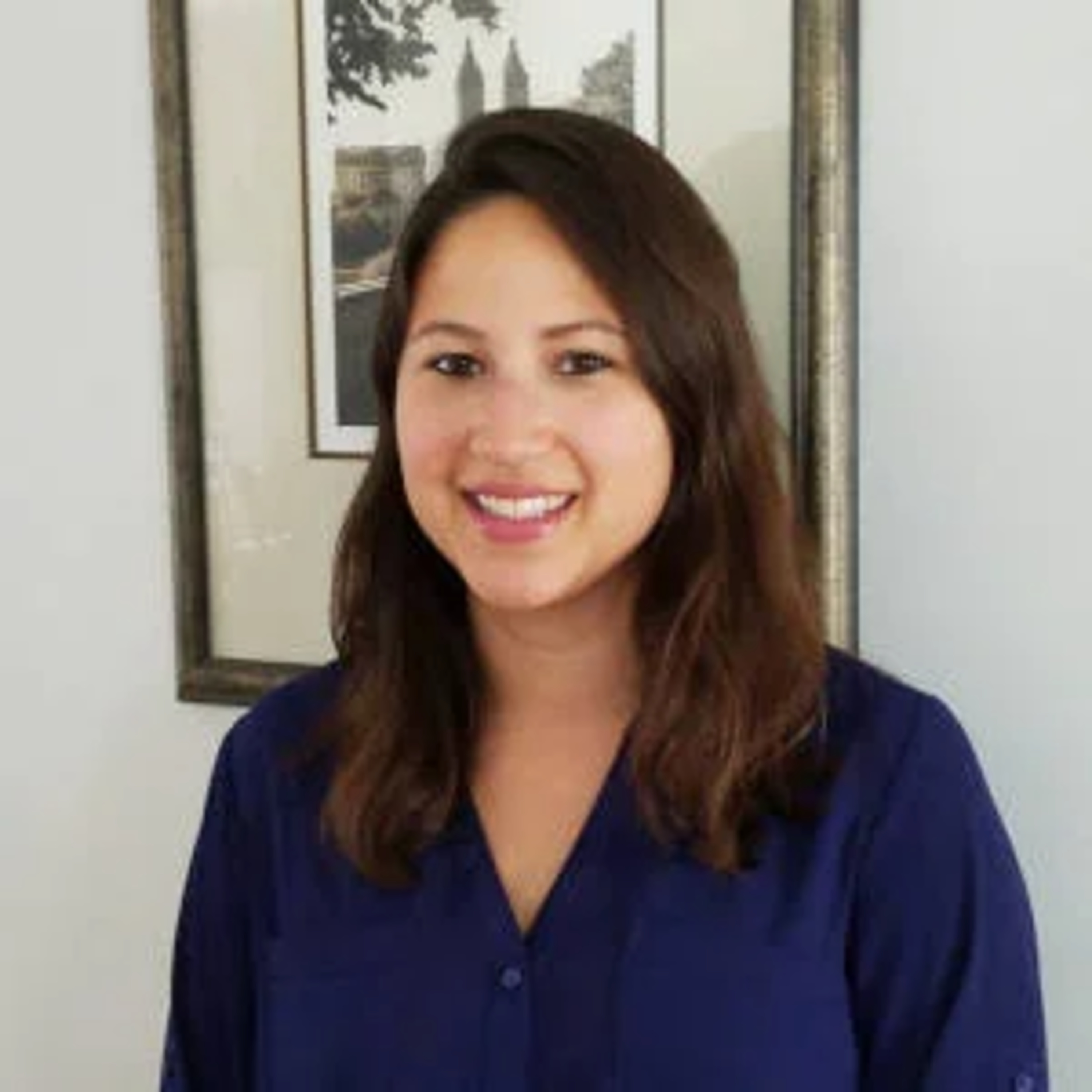 The Addiction PsychologistTessa Nalven - Multiracial Health Disparities in Substance UseEpidemiological surveys suggest that prevalence of harmful patterns of substance use is greatest among Multiracial populations relative to other racial demographic groups. Yet, most studies either do not report full racial demographics or under-sample people who identify as multiracial. In this episode, Tessa Nalven illuminates the importance of studying multiracial populations, discusses theoretical mechanisms for disparities, and provides recommendations for research with multiracial populations. Tessa Nalven is a currently finishing her doctoral degree in clinical psychology at the University of Rhode Island. She is completing her clinical internship year at the Boston VA. Tessa was the recipient of the 2022...2023-08-1450 min
The Addiction PsychologistTessa Nalven - Multiracial Health Disparities in Substance UseEpidemiological surveys suggest that prevalence of harmful patterns of substance use is greatest among Multiracial populations relative to other racial demographic groups. Yet, most studies either do not report full racial demographics or under-sample people who identify as multiracial. In this episode, Tessa Nalven illuminates the importance of studying multiracial populations, discusses theoretical mechanisms for disparities, and provides recommendations for research with multiracial populations. Tessa Nalven is a currently finishing her doctoral degree in clinical psychology at the University of Rhode Island. She is completing her clinical internship year at the Boston VA. Tessa was the recipient of the 2022...2023-08-1450 min The Addiction PsychologistDr. Justin Strickland - The Twin Methamphetamine and Opioid EpidemicsIn recent years, there has been a dramatic rise in methamphetamine use among people who use opioids. What is driving this effect? How do these drugs interact? Do they serve substitute or complementary functions? Dr. Justin Strickland summarizes the state of the science and outlines potential solutions. Dr. Strickland is a psychologist and assistant professor of Psychiatry and Behavioral Sciences at Johns Hopkins University School of Medicine. You can learn more about his work here. 2023-06-211h 14
The Addiction PsychologistDr. Justin Strickland - The Twin Methamphetamine and Opioid EpidemicsIn recent years, there has been a dramatic rise in methamphetamine use among people who use opioids. What is driving this effect? How do these drugs interact? Do they serve substitute or complementary functions? Dr. Justin Strickland summarizes the state of the science and outlines potential solutions. Dr. Strickland is a psychologist and assistant professor of Psychiatry and Behavioral Sciences at Johns Hopkins University School of Medicine. You can learn more about his work here. 2023-06-211h 14 The Addiction PsychologistDr. Rachel Winograd - Evidence-based Harm Reduction Approaches to Opioid Use DisorderDuring the past several decades, the United States has experienced several distinct waves of opioid epidemic, prompting those providing services to think of novel ways to provide services. to those in need. Dr. Rachel Winograd found her passion for community-based harm reduction services in St. Louis, a city ravaged by wave after wave of the opioid epidemic, and quickly found her place within a network of harm reductionists, community-based providers, and policy makers in Missouri with a common goal. In this episode, Dr. Winograd teaches us about the opioid epidemic and shares about the work she and her team...2023-05-221h 14
The Addiction PsychologistDr. Rachel Winograd - Evidence-based Harm Reduction Approaches to Opioid Use DisorderDuring the past several decades, the United States has experienced several distinct waves of opioid epidemic, prompting those providing services to think of novel ways to provide services. to those in need. Dr. Rachel Winograd found her passion for community-based harm reduction services in St. Louis, a city ravaged by wave after wave of the opioid epidemic, and quickly found her place within a network of harm reductionists, community-based providers, and policy makers in Missouri with a common goal. In this episode, Dr. Winograd teaches us about the opioid epidemic and shares about the work she and her team...2023-05-221h 14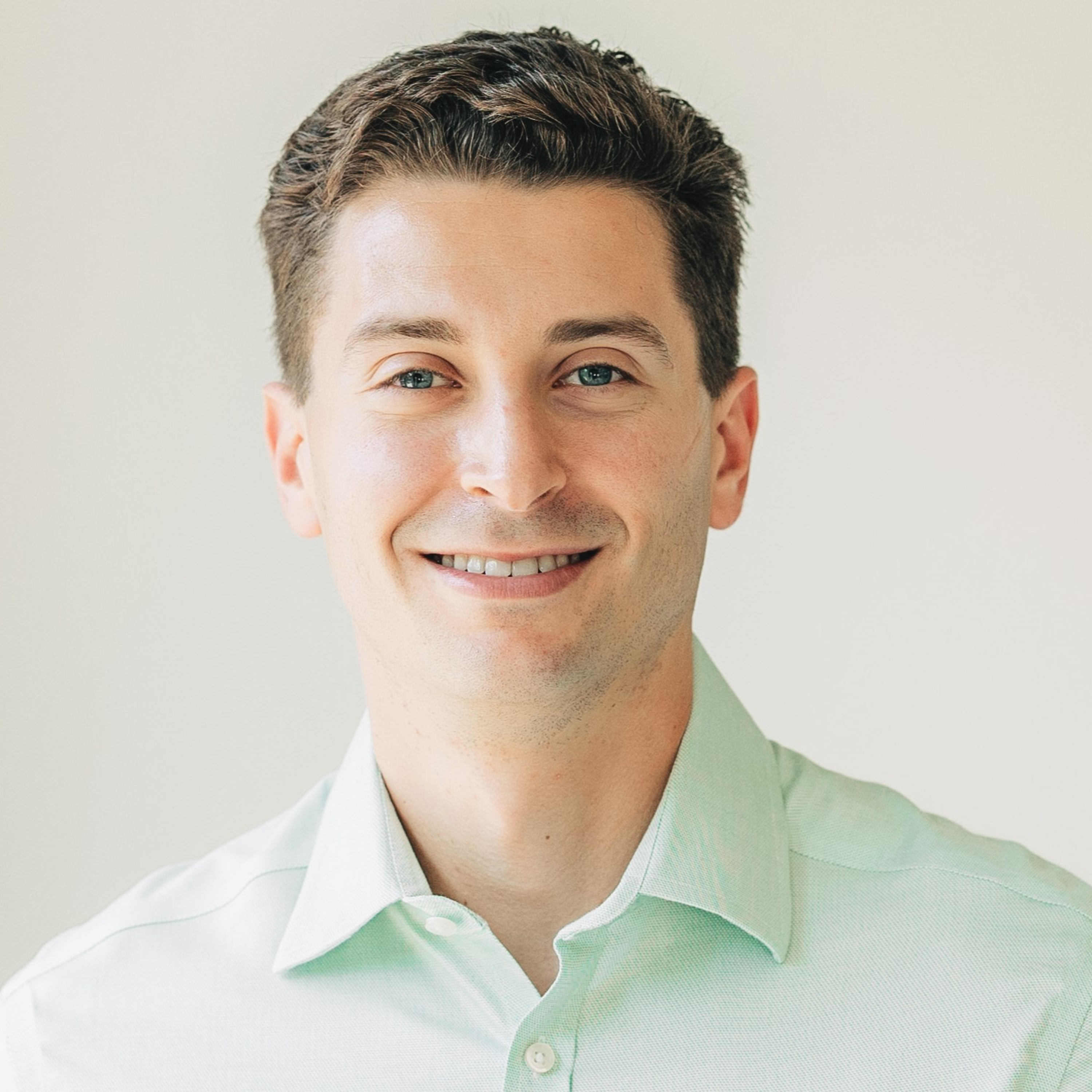 The Addiction PsychologistDr. Sam Meisel - Social Factors in Adolescent Substance UseFor many, the onset of substance use occurs in adolescence. A subset of adolescents who use substances develop substance use disorders later in life, and some even develop harmful patterns of drinking while still in the developmental stage of adolescence. Why is substance use initiation likely in this age group, and what is the developmental function of substance use behavior? What are the interpersonal processes that influence substance use, and how do relationships with friends and family change during this critical developmental stage? Is it possible to leverage these interpersonal processes to bolster treatment initiation and success? Dr. Sam...2023-04-131h 04
The Addiction PsychologistDr. Sam Meisel - Social Factors in Adolescent Substance UseFor many, the onset of substance use occurs in adolescence. A subset of adolescents who use substances develop substance use disorders later in life, and some even develop harmful patterns of drinking while still in the developmental stage of adolescence. Why is substance use initiation likely in this age group, and what is the developmental function of substance use behavior? What are the interpersonal processes that influence substance use, and how do relationships with friends and family change during this critical developmental stage? Is it possible to leverage these interpersonal processes to bolster treatment initiation and success? Dr. Sam...2023-04-131h 04 The Addiction PsychologistDr. Bill Stoops - Cocaine and Cocaine Use DisorderDr. Bill Stoops provides an overview of the pharmacology, effects, and prevalence of cocaine, in addition to treatments for cocaine use disorder. Dr. Bill Stoops is an Associate Director for Clinical Science in the Substance Use Priority Research Area, and a Professor in the Departments of Behavioral Science, Psychiatry, and Psychology, and in the Center for Drug and Alcohol Research, at the University of Kentucky.2023-03-131h 08
The Addiction PsychologistDr. Bill Stoops - Cocaine and Cocaine Use DisorderDr. Bill Stoops provides an overview of the pharmacology, effects, and prevalence of cocaine, in addition to treatments for cocaine use disorder. Dr. Bill Stoops is an Associate Director for Clinical Science in the Substance Use Priority Research Area, and a Professor in the Departments of Behavioral Science, Psychiatry, and Psychology, and in the Center for Drug and Alcohol Research, at the University of Kentucky.2023-03-131h 08 The Addiction PsychologistDr. Mark Prince - Protective Behavioral StrategiesAlcohol and other drugs are sometimes accompanied by harms from use. However, use only accounts for some of the variance in substance use harms, and their are strategies, and harms can be reduced through other means aside from reductions in substance use. This is particularly important because many who use substances do not have a desire to quit or cut down on their use, even if they do experience harms. In this episode, Dr. Mark Prince discusses the literature on protective behavioral strategies, or any behavioral strategy that may reduce the harm of substance use, often through reduction of...2022-12-201h 08
The Addiction PsychologistDr. Mark Prince - Protective Behavioral StrategiesAlcohol and other drugs are sometimes accompanied by harms from use. However, use only accounts for some of the variance in substance use harms, and their are strategies, and harms can be reduced through other means aside from reductions in substance use. This is particularly important because many who use substances do not have a desire to quit or cut down on their use, even if they do experience harms. In this episode, Dr. Mark Prince discusses the literature on protective behavioral strategies, or any behavioral strategy that may reduce the harm of substance use, often through reduction of...2022-12-201h 08 The Addiction PsychologistDr. Jen Read - Alcohol-related Sexual AssaultSexual assault is a massive problem on college campuses, and alcohol is involved in some form or another in more than half of cases reported. Dr. Jen Read talks about her work to understand the complex social environment within which sexual assault often takes place, and her work to design interventions to reduce the rate of sexual assault. Unfortunately, the evidence suggests that intervention and prevention approaches targeting the perpetrators do not work. However, sexual assaults often take place in complex social environments, and interventions may be able to leverage friendships to create more explicit conversations about how to...2022-10-0357 min
The Addiction PsychologistDr. Jen Read - Alcohol-related Sexual AssaultSexual assault is a massive problem on college campuses, and alcohol is involved in some form or another in more than half of cases reported. Dr. Jen Read talks about her work to understand the complex social environment within which sexual assault often takes place, and her work to design interventions to reduce the rate of sexual assault. Unfortunately, the evidence suggests that intervention and prevention approaches targeting the perpetrators do not work. However, sexual assaults often take place in complex social environments, and interventions may be able to leverage friendships to create more explicit conversations about how to...2022-10-0357 min The Addiction PsychologistDr. Adrian Bravo - Studying Addiction across CulturesCultural influences play a role in defining normative behavior and definitions of harmful substance use; yet, a great deal of our understanding of addiction comes from privileged populations in American and Western society. Dr. Adrian Bravo talks about his line of research connecting researchers around the world to study differences in substance use, norms, and processes across cultures. Dr Adrian Bravo is an assistant professor in the Department of Psychological Sciences at the College of William & Mary.2022-08-151h 02
The Addiction PsychologistDr. Adrian Bravo - Studying Addiction across CulturesCultural influences play a role in defining normative behavior and definitions of harmful substance use; yet, a great deal of our understanding of addiction comes from privileged populations in American and Western society. Dr. Adrian Bravo talks about his line of research connecting researchers around the world to study differences in substance use, norms, and processes across cultures. Dr Adrian Bravo is an assistant professor in the Department of Psychological Sciences at the College of William & Mary.2022-08-151h 02 The Addiction PsychologistDr. Ana Abrantes - Exercise and Substance Use TreatmentRegular exercise confers many benefits: It will increase your mood, decrease fatigue, and increase the quality of your sleep, among others. But how can exercise impact substance use? Is exercise an effective adjunct to treatment? If so, how do we encourage a behavior that, for many, is so hard to maintain? Dr. Ana Abrantes discusses the research on exercise and substance use treatment, with a particular focus on making exercise accessible. Dr. Ana Abrantes is a Professor of Psychiatry and Human Behavior in the Alpert Medical School of Brown University, and the Co-Director of Behavioral Medicine and Addictions Research...2022-07-111h 01
The Addiction PsychologistDr. Ana Abrantes - Exercise and Substance Use TreatmentRegular exercise confers many benefits: It will increase your mood, decrease fatigue, and increase the quality of your sleep, among others. But how can exercise impact substance use? Is exercise an effective adjunct to treatment? If so, how do we encourage a behavior that, for many, is so hard to maintain? Dr. Ana Abrantes discusses the research on exercise and substance use treatment, with a particular focus on making exercise accessible. Dr. Ana Abrantes is a Professor of Psychiatry and Human Behavior in the Alpert Medical School of Brown University, and the Co-Director of Behavioral Medicine and Addictions Research...2022-07-111h 01 The Addiction PsychologistDr. Kirsten Smith - KratomHave you ever passed a sign on the road advertising for something called "Kratom"? or, perhaps, a friend or family member has mentioned trying it. What is it? An herbal supplement, or pharmacological drug? As addiction scientists, epidemiologists, and clinicians, do we have anything to be concerned about? In this episode, Dr. Kirsten Smith catches us up on what is known about Kratom, including the pharmacology, effects, and prevalence of this emerging substance. Dr. Kirsten Smith is a Post-doctoral Fellow in the Real-world Assessment, Prediction, and Treatment Unit at the National Institute on Drug Abuse Intramural Research Program, and...2022-06-061h 10
The Addiction PsychologistDr. Kirsten Smith - KratomHave you ever passed a sign on the road advertising for something called "Kratom"? or, perhaps, a friend or family member has mentioned trying it. What is it? An herbal supplement, or pharmacological drug? As addiction scientists, epidemiologists, and clinicians, do we have anything to be concerned about? In this episode, Dr. Kirsten Smith catches us up on what is known about Kratom, including the pharmacology, effects, and prevalence of this emerging substance. Dr. Kirsten Smith is a Post-doctoral Fellow in the Real-world Assessment, Prediction, and Treatment Unit at the National Institute on Drug Abuse Intramural Research Program, and...2022-06-061h 10 The Addiction PsychologistCPA 2022 - Early Career Award Sneak Peak!ARE YOU READY FOR CPA 2022?
The first in-person CPA conference since 2019 is happening this weekend, April 7-9, in Portland, OR. In addition to amazing networking opportunities, there will be incredible sessions and posters presented by experts ranging from early to late career, studying addiction and related topics. On this episode, we highlight the award-winning work of five early career scholars who will be presenting their research in Portland. Tune in for a sneak preview, and get hyped for CPA! Timestamps and presentation titles below.
1:34 - 10:44: Dr. Jevon Rice - Training in Substance Us...2022-04-0548 min
The Addiction PsychologistCPA 2022 - Early Career Award Sneak Peak!ARE YOU READY FOR CPA 2022?
The first in-person CPA conference since 2019 is happening this weekend, April 7-9, in Portland, OR. In addition to amazing networking opportunities, there will be incredible sessions and posters presented by experts ranging from early to late career, studying addiction and related topics. On this episode, we highlight the award-winning work of five early career scholars who will be presenting their research in Portland. Tune in for a sneak preview, and get hyped for CPA! Timestamps and presentation titles below.
1:34 - 10:44: Dr. Jevon Rice - Training in Substance Us...2022-04-0548 min The Addiction PsychologistDr. Mary Beth Miller - Sleep and Substance UseSleep is a critical function that can be disrupted by substance use. In fact, the majority of people with an alcohol use disorder report insomnia or sleep disturbance. So, what is good sleep, and why does it seem that substance use disrupts it? Can you treat the sleep, even if the drinking doesn't change? Does cannabis actually help sleep? Dr. Mary Beth Miller answers these questions and more, in our latest episode on the relationship between sleep and substance use. Dr. Mary Beth Miller is an Assistant Professor in the Department of Psychiatry at the University of Missouri School...2022-03-071h 03
The Addiction PsychologistDr. Mary Beth Miller - Sleep and Substance UseSleep is a critical function that can be disrupted by substance use. In fact, the majority of people with an alcohol use disorder report insomnia or sleep disturbance. So, what is good sleep, and why does it seem that substance use disrupts it? Can you treat the sleep, even if the drinking doesn't change? Does cannabis actually help sleep? Dr. Mary Beth Miller answers these questions and more, in our latest episode on the relationship between sleep and substance use. Dr. Mary Beth Miller is an Assistant Professor in the Department of Psychiatry at the University of Missouri School...2022-03-071h 03 The Addiction PsychologistDr. Barbara McCrady - Alcohol Behavioral Couple TherapyPersistent alcohol use can, at times, interfere with intimate relationships and create conflict. The dynamic of the couple can be a source of tension and may create a loop that can perpetuate alcohol use. However, intimate couples relationships can also be great supports in the recovery from alcohol use disorder. Dr. Barbara McCrady talks about decades of research and development of Alcohol Behavioral Couples Therapy (ABCT), which attempts to target changes in alcohol use by bolstering the couples relationship and using the partner to help work toward behavior change. Dr. Barbara McCrady Professor Emerita of Psychology and the Center...2022-02-071h 04
The Addiction PsychologistDr. Barbara McCrady - Alcohol Behavioral Couple TherapyPersistent alcohol use can, at times, interfere with intimate relationships and create conflict. The dynamic of the couple can be a source of tension and may create a loop that can perpetuate alcohol use. However, intimate couples relationships can also be great supports in the recovery from alcohol use disorder. Dr. Barbara McCrady talks about decades of research and development of Alcohol Behavioral Couples Therapy (ABCT), which attempts to target changes in alcohol use by bolstering the couples relationship and using the partner to help work toward behavior change. Dr. Barbara McCrady Professor Emerita of Psychology and the Center...2022-02-071h 04 The Addiction PsychologistDr. David Eddie - Brain-Body ConnectionsAlcohol use produces changes in the cardiovascular system affecting heart rate. These systematic differences in heart rate can, in turn, function as a biological signature (i.e., biomarker) of dysfunction among those with alcohol use disorder (AUD). In addition to assessing difficulties, understanding heart rate modulation may have important treatment implications. Dr. David Eddie talks about heart rate variability as a biomarker of AUD and his work developing behavioral skills that can target heart rate using biofeedback to improve AUD treatment outcomes. Dr. Eddie is an Assistant Professor at Harvard Medical School and a Research Scientist at both Massachusetts...2022-01-171h 05
The Addiction PsychologistDr. David Eddie - Brain-Body ConnectionsAlcohol use produces changes in the cardiovascular system affecting heart rate. These systematic differences in heart rate can, in turn, function as a biological signature (i.e., biomarker) of dysfunction among those with alcohol use disorder (AUD). In addition to assessing difficulties, understanding heart rate modulation may have important treatment implications. Dr. David Eddie talks about heart rate variability as a biomarker of AUD and his work developing behavioral skills that can target heart rate using biofeedback to improve AUD treatment outcomes. Dr. Eddie is an Assistant Professor at Harvard Medical School and a Research Scientist at both Massachusetts...2022-01-171h 05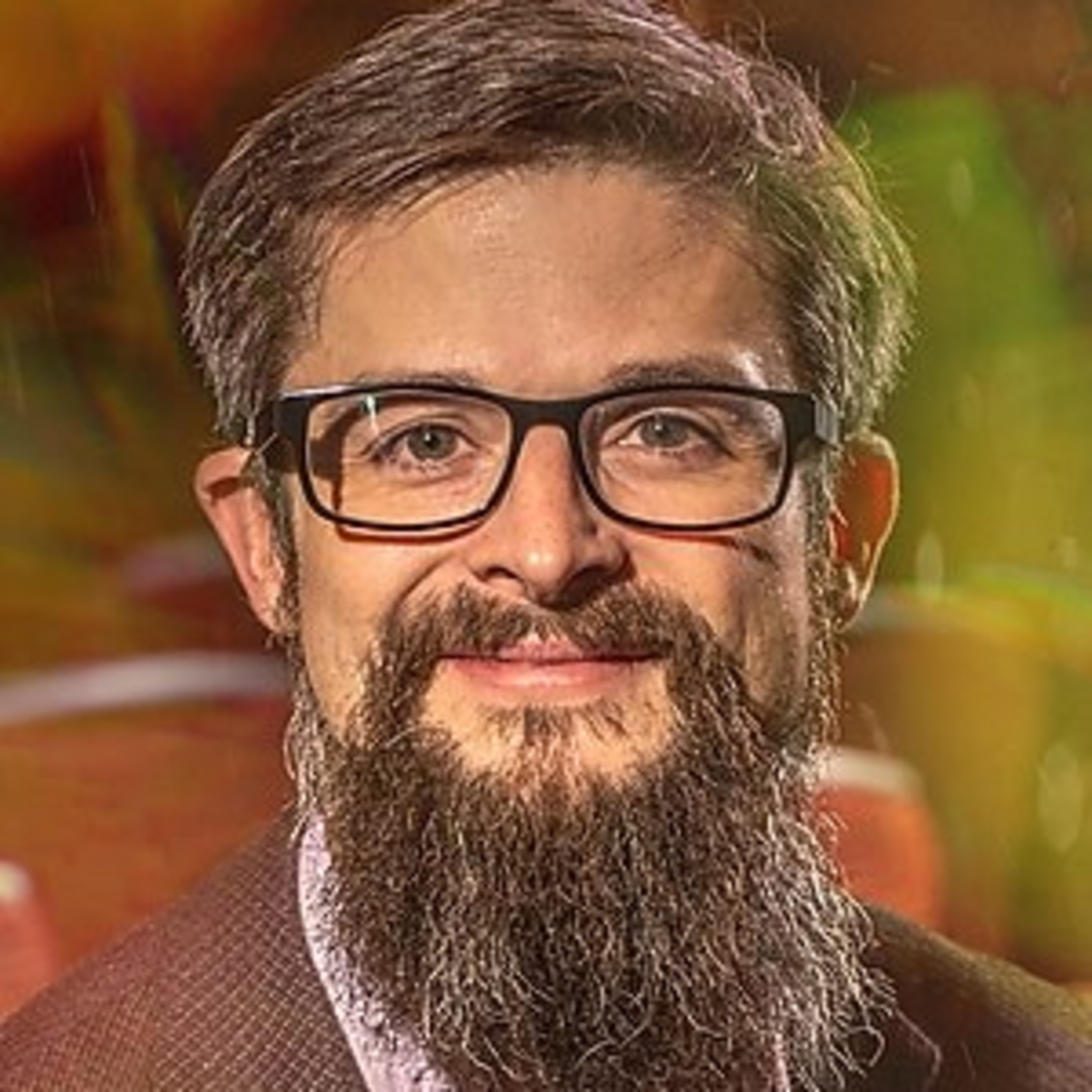 The Addiction PsychologistDr. Matthew Johnson - Psychedelics: History and Therapeutic ValueMost commonly known psychedelics are considered schedule 1 substances by the controlled substances act, meaning they is no currently accepted medical use and a high potential for abuse. However, there is emerging evidence that psychedelics may have some therapeutic value. Dr. Matthew Johnson discusses the history of psychedelic research in the United States and his work on understanding abuse potential and therapeutic value of one specific psychedelic, psilocybin. Matt is the Susan Hill Ward Professor in Psychedelics and Consciousness and Professor of Psychiatry and Behavioral Sciences at Johns Hopkins.2021-12-061h 16
The Addiction PsychologistDr. Matthew Johnson - Psychedelics: History and Therapeutic ValueMost commonly known psychedelics are considered schedule 1 substances by the controlled substances act, meaning they is no currently accepted medical use and a high potential for abuse. However, there is emerging evidence that psychedelics may have some therapeutic value. Dr. Matthew Johnson discusses the history of psychedelic research in the United States and his work on understanding abuse potential and therapeutic value of one specific psychedelic, psilocybin. Matt is the Susan Hill Ward Professor in Psychedelics and Consciousness and Professor of Psychiatry and Behavioral Sciences at Johns Hopkins.2021-12-061h 16 The Addiction PsychologistDr. Robert Miranda - Treating Substance Use Disorder in AdolescenceA great deal of our research focuses on adults with substance use disorder. Yet, many who develop severe substance use disorder begin during adolescence. What types of psychosocial treatments are available for adolescents? What about pharmacological treatments? Does combining psychosocial and pharmacological treatments increase efficacy? In this episode, Dr. Robert Miranda discusses treatments available for adolescents and the complications of developing these treatments. Dr. Robert Miranda is a Professor of Psychiatry and Human Behavior in the Warren Alpert Medical School, a Professor of Behavioral and Social Sciences in the School of Public Health, and the Training Director of the...2021-11-081h 00
The Addiction PsychologistDr. Robert Miranda - Treating Substance Use Disorder in AdolescenceA great deal of our research focuses on adults with substance use disorder. Yet, many who develop severe substance use disorder begin during adolescence. What types of psychosocial treatments are available for adolescents? What about pharmacological treatments? Does combining psychosocial and pharmacological treatments increase efficacy? In this episode, Dr. Robert Miranda discusses treatments available for adolescents and the complications of developing these treatments. Dr. Robert Miranda is a Professor of Psychiatry and Human Behavior in the Warren Alpert Medical School, a Professor of Behavioral and Social Sciences in the School of Public Health, and the Training Director of the...2021-11-081h 00 The Addiction PsychologistPolicy Brief: Dr. Adam Leventhal Discusses the FDA Authorization of the Marketing of Three New E-Cigarette ProductsOn this new Addiction Psychologist segment, we talk to experts about new policy developments to get a better understanding of the implications for our work, our clients, and our personal lives. On this episode, we talk with Dr. Adam Leventhal about the October 12, 2021 announcement that the FDA has authorized the marketing of three new tobacco products, marking the first set of electronic nicotine delivery system (ENDS) products ever to be authorized by the FDA through the Premarket Tobacco Product Application (PMTA) pathway. Dr. Adam Leventhal is a Professor in the Department of Preventive Medicine and Psychology in the Keck...2021-10-2110 min
The Addiction PsychologistPolicy Brief: Dr. Adam Leventhal Discusses the FDA Authorization of the Marketing of Three New E-Cigarette ProductsOn this new Addiction Psychologist segment, we talk to experts about new policy developments to get a better understanding of the implications for our work, our clients, and our personal lives. On this episode, we talk with Dr. Adam Leventhal about the October 12, 2021 announcement that the FDA has authorized the marketing of three new tobacco products, marking the first set of electronic nicotine delivery system (ENDS) products ever to be authorized by the FDA through the Premarket Tobacco Product Application (PMTA) pathway. Dr. Adam Leventhal is a Professor in the Department of Preventive Medicine and Psychology in the Keck...2021-10-2110 min The Addiction PsychologistDr. Hollis Karoly - Cannabinoids in Cannabis: CBD and THCCannabis is becoming increasingly tolerated, both culturally and legally, across the United States and other parts of the world. Yet, there are at least 100 different psychoactive cannabinoids in any strain of cannabis. What do we know about these cannabinoids? Dr. Hollis Karoly talks about the two most common cannabinoids, THC and CBD, and what the scientific evidence suggests about their harms and benefits. She then discusses the connection between cannabinoids and alcohol use. Dr. Hollis Karoly is an Assistant Professor in the Department of Psychology at Colorado State University.2021-10-1852 min
The Addiction PsychologistDr. Hollis Karoly - Cannabinoids in Cannabis: CBD and THCCannabis is becoming increasingly tolerated, both culturally and legally, across the United States and other parts of the world. Yet, there are at least 100 different psychoactive cannabinoids in any strain of cannabis. What do we know about these cannabinoids? Dr. Hollis Karoly talks about the two most common cannabinoids, THC and CBD, and what the scientific evidence suggests about their harms and benefits. She then discusses the connection between cannabinoids and alcohol use. Dr. Hollis Karoly is an Assistant Professor in the Department of Psychology at Colorado State University.2021-10-1852 min The Addiction PsychologistDr. Eric Garland - Mindfulness Oriented Recovery EnhancementAddiction is characterized in part by habitual drug seeking and use and diminished pleasure from nondrug alternatives. Both may serve as critical points of intervention in the treatment of substance use. Mindfulness, the practice of intentional awareness, may be a useful tool to help clients notice habitual behavior and savor nondrug alternative rewards. Dr. Eric Garland discusses integrating mindfulness with cognitive behavioral therapy techniques to create Mindfulness Oriented Recovery Enhancement. Dr. Eric Garland is the Distinguished Endowed Chair in Research, Distinguished Professor, and Associate Dean for Research in the University of Utah College of Social Work. He is also...2021-09-141h 04
The Addiction PsychologistDr. Eric Garland - Mindfulness Oriented Recovery EnhancementAddiction is characterized in part by habitual drug seeking and use and diminished pleasure from nondrug alternatives. Both may serve as critical points of intervention in the treatment of substance use. Mindfulness, the practice of intentional awareness, may be a useful tool to help clients notice habitual behavior and savor nondrug alternative rewards. Dr. Eric Garland discusses integrating mindfulness with cognitive behavioral therapy techniques to create Mindfulness Oriented Recovery Enhancement. Dr. Eric Garland is the Distinguished Endowed Chair in Research, Distinguished Professor, and Associate Dean for Research in the University of Utah College of Social Work. He is also...2021-09-141h 04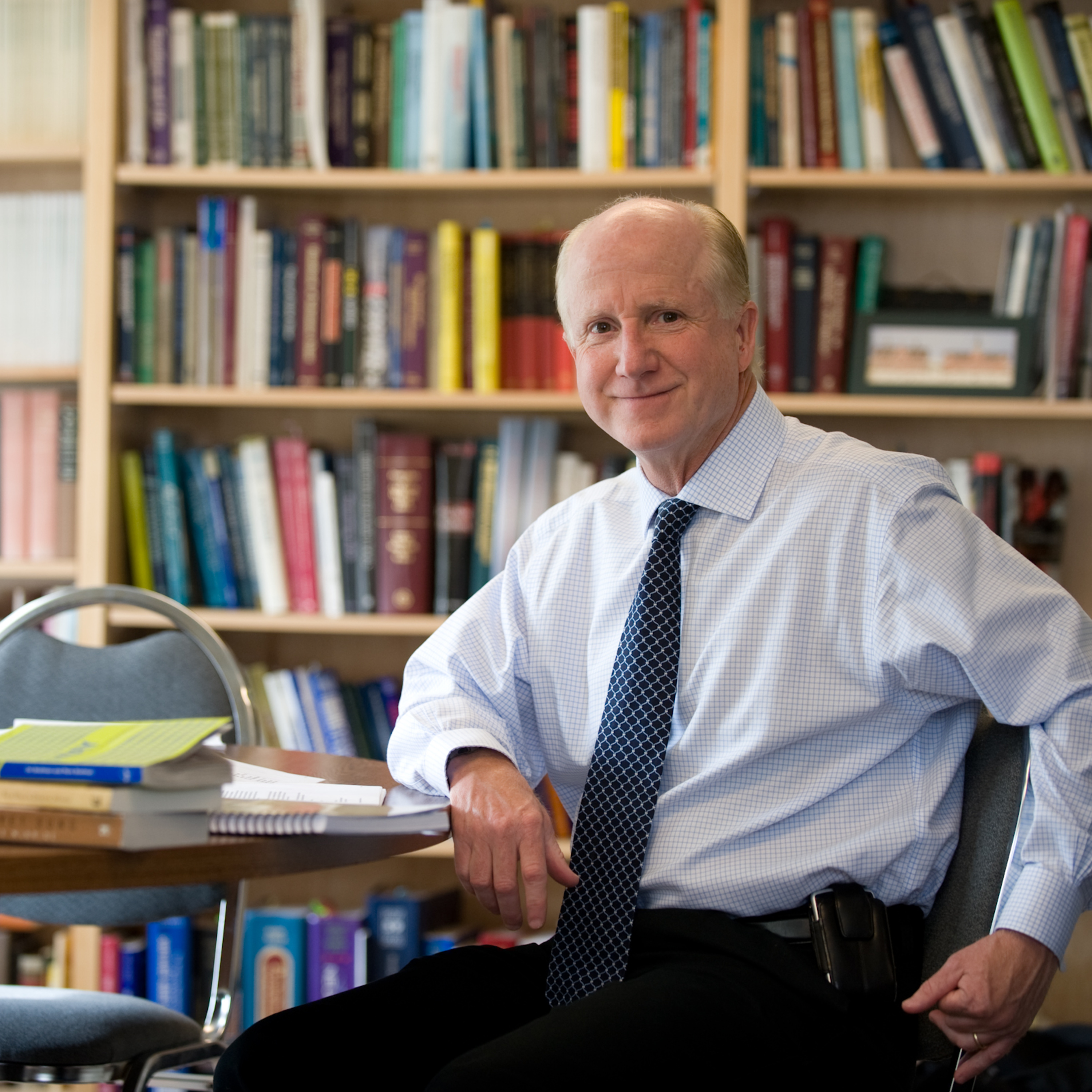 The Addiction PsychologistIntervention/Treatment for Substance Use Disorder, Part 3: Dr. Stephen Higgins - Contingency ManagementContingency management is a therapy based in behaviorism in which individuals are 'reinforced' for evidence of positive behavioral change. In this episode, Dr. Stephen Higgins explains contingency management and outlines the support for its efficacy. He also discusses why it hasn't been adopted more widely, despite its strong efficacy, and why we should be doing more contingency management. Dr. Higgins is the Virginia H. Donaldson Professor of Translational Science, Vice Chair of Psychiatry, Professor of Psychiatry, Professor of Psychological Science, and Director of Vermont Center on Behavior and Health at The University of Vermont.
The recent systematic...2021-08-161h 07
The Addiction PsychologistIntervention/Treatment for Substance Use Disorder, Part 3: Dr. Stephen Higgins - Contingency ManagementContingency management is a therapy based in behaviorism in which individuals are 'reinforced' for evidence of positive behavioral change. In this episode, Dr. Stephen Higgins explains contingency management and outlines the support for its efficacy. He also discusses why it hasn't been adopted more widely, despite its strong efficacy, and why we should be doing more contingency management. Dr. Higgins is the Virginia H. Donaldson Professor of Translational Science, Vice Chair of Psychiatry, Professor of Psychiatry, Professor of Psychological Science, and Director of Vermont Center on Behavior and Health at The University of Vermont.
The recent systematic...2021-08-161h 07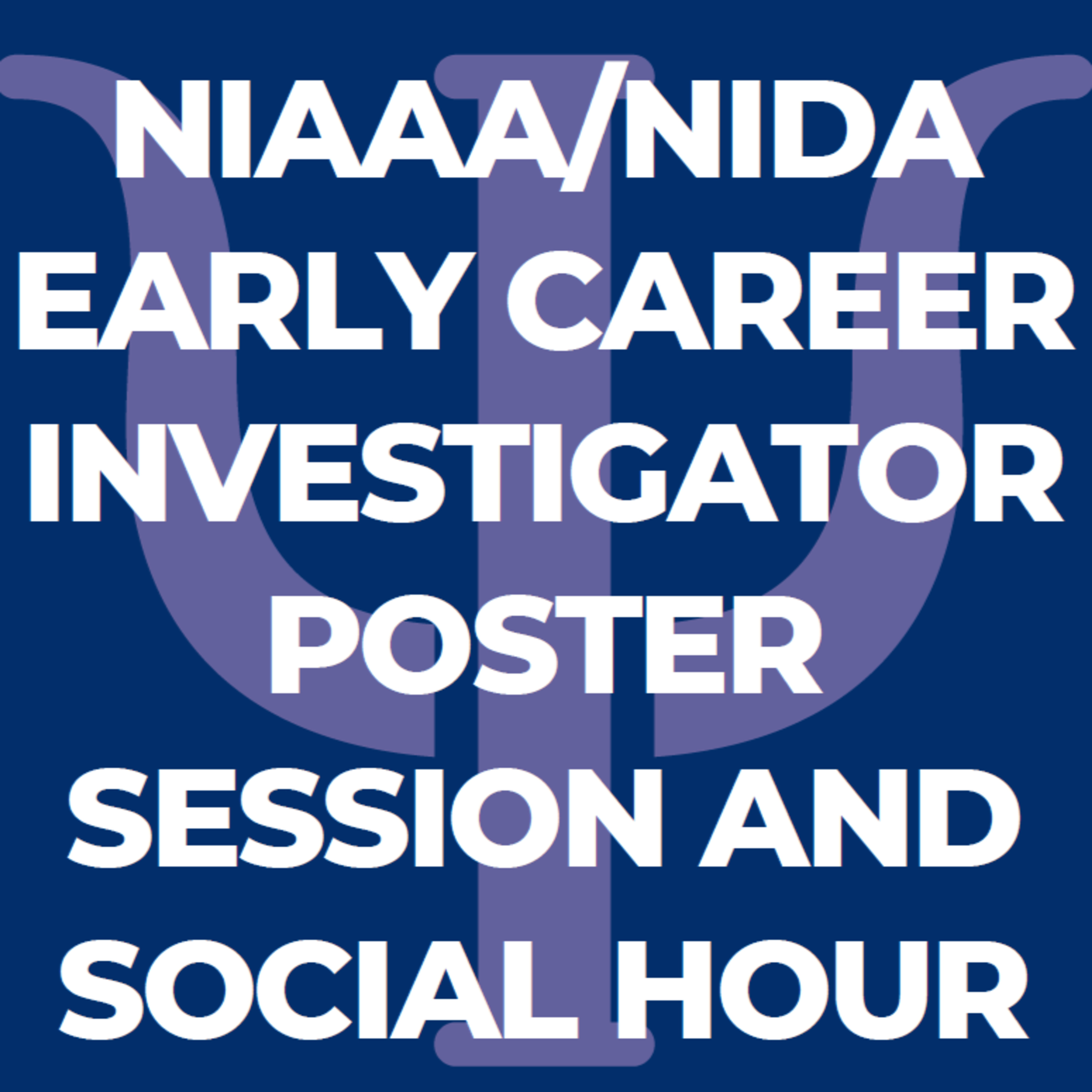 The Addiction PsychologistNIAAA/NIDA Student/ECR Poster Session - APA convention 2021Listen to the future voices of addiction research. Ten students/ECRs discuss their excellent work which will also be presented live, along with other excellent research, on August 13, 2021 during the NIAAA/NIDA student/ECR poster session. The poster session is sponsered by NIDA/NIAAA, and all researchers were provided travel awards by either NIAAA or NIDA. Primary presenters, poster titles, and timestamps for posters below.
To learn more about the poser session or to sign up to attend this free live event, please click here.
1. Julie Wojtaszek (2:09-7:10) - Changes and moderating influences on addictive an...2021-08-091h 28
The Addiction PsychologistNIAAA/NIDA Student/ECR Poster Session - APA convention 2021Listen to the future voices of addiction research. Ten students/ECRs discuss their excellent work which will also be presented live, along with other excellent research, on August 13, 2021 during the NIAAA/NIDA student/ECR poster session. The poster session is sponsered by NIDA/NIAAA, and all researchers were provided travel awards by either NIAAA or NIDA. Primary presenters, poster titles, and timestamps for posters below.
To learn more about the poser session or to sign up to attend this free live event, please click here.
1. Julie Wojtaszek (2:09-7:10) - Changes and moderating influences on addictive an...2021-08-091h 28 The Addiction PsychologistIntervention/Treatment for Substance Use Disorder, Part 2: Dr. Kate McHugh - Cognitive Behavioral Therapy for Substance Use DisorderA great deal of individual's require substance use treatment that is more active than brief motivational interventions, yet are unable or unwilling to attend long-term inpatient treatment. Cognitive Behavioral Therapy (CBT) for is an effective treatment for substance use disorders. CBT for substance use disorder targets emotions, cognitions, and behaviors associated with substance use and teach skills in order to reduce use. Dr. Kate McHugh discusses CBT for substance use disorder, including her work to increase its overall impact. Kate is the Director of the Stress, Anxiety, and Substance Use Laboratory and Director of Behavioral Therapy Development, Training and...2021-07-051h 15
The Addiction PsychologistIntervention/Treatment for Substance Use Disorder, Part 2: Dr. Kate McHugh - Cognitive Behavioral Therapy for Substance Use DisorderA great deal of individual's require substance use treatment that is more active than brief motivational interventions, yet are unable or unwilling to attend long-term inpatient treatment. Cognitive Behavioral Therapy (CBT) for is an effective treatment for substance use disorders. CBT for substance use disorder targets emotions, cognitions, and behaviors associated with substance use and teach skills in order to reduce use. Dr. Kate McHugh discusses CBT for substance use disorder, including her work to increase its overall impact. Kate is the Director of the Stress, Anxiety, and Substance Use Laboratory and Director of Behavioral Therapy Development, Training and...2021-07-051h 15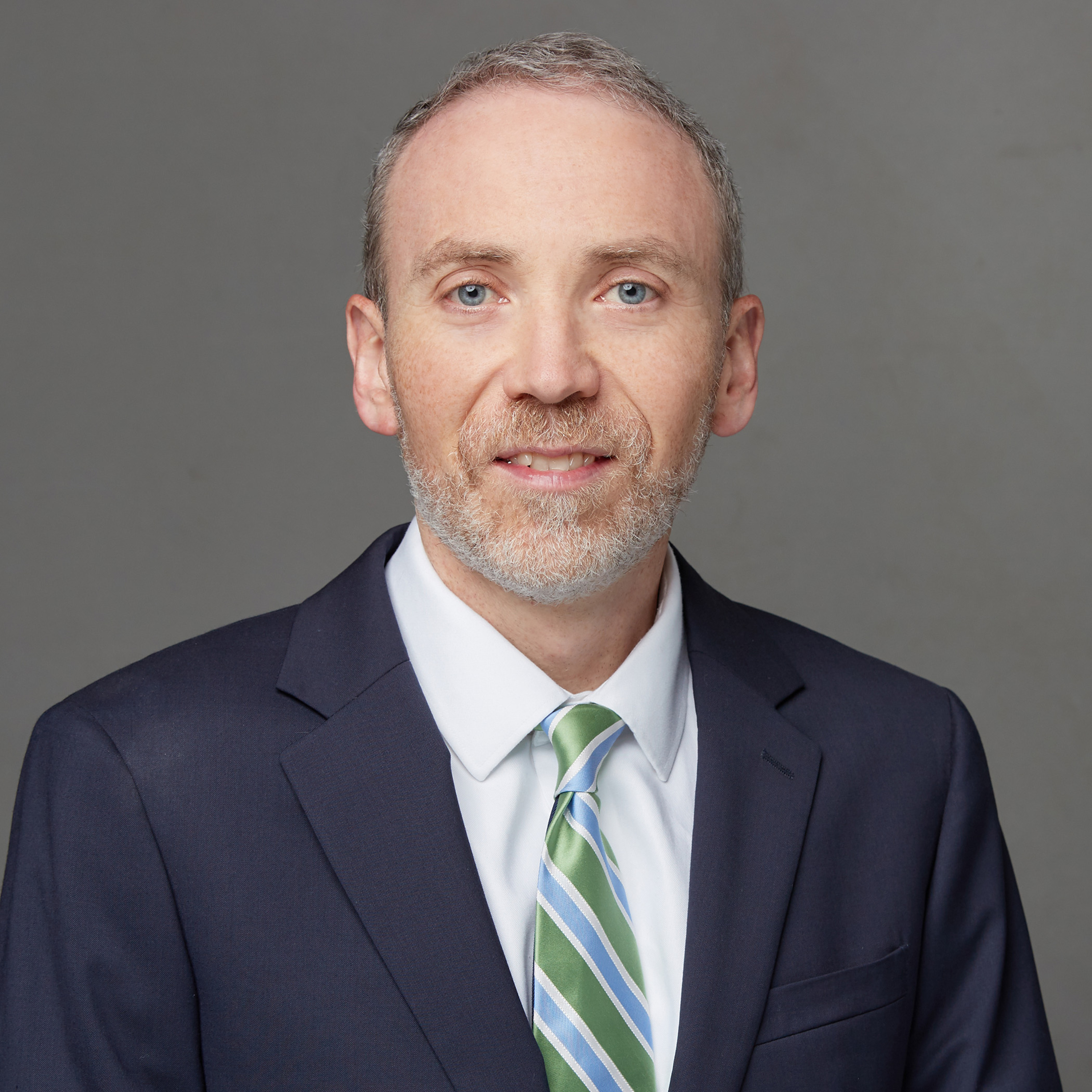 The Addiction PsychologistIntervention/Treatment for Substance Use Disorder, Part 1: Dr. Jim Murphy - Brief Motivational InterventionsCollege students drink at higher levels than most other groups; yet, their motivation to reduce drinking is often low because alcohol consumption provides salient social benefits. Despite these benefits, emerging adulthood is a critical developmental period that can impact the likelihood of alcohol use disorder over the lifespan. Dr. Jim Murphy talks broadly about brief motivational interventions (BMIs) for college populations, which typically deliver personalized feedback in a motivational interviewing style to increase motivation to change drinking practices among college students. Jim also discusses the limitations to BMIs and discusses his work to try to extend their efficacy. Dr...2021-06-071h 09
The Addiction PsychologistIntervention/Treatment for Substance Use Disorder, Part 1: Dr. Jim Murphy - Brief Motivational InterventionsCollege students drink at higher levels than most other groups; yet, their motivation to reduce drinking is often low because alcohol consumption provides salient social benefits. Despite these benefits, emerging adulthood is a critical developmental period that can impact the likelihood of alcohol use disorder over the lifespan. Dr. Jim Murphy talks broadly about brief motivational interventions (BMIs) for college populations, which typically deliver personalized feedback in a motivational interviewing style to increase motivation to change drinking practices among college students. Jim also discusses the limitations to BMIs and discusses his work to try to extend their efficacy. Dr...2021-06-071h 09 The Addiction PsychologistDr. John Kelly - Stigma in Addiction and Courses of RecoveryAddiction is among the most stigmatized of all social/health problems. Language surrounding clinical care in addiction is unlike any other area of medicine in that it often uses terms that are pejorative and lack specificity. In this episode, Dr. John Kelly talks about why we need to “stop talking dirty” in addiction research and treatment. He also discussed the results of the National Recovery Study – the only epidemiological of people in recovery ever conducted. Ever wonder how many serious attempts it takes to resolve an alcohol or drug problem, on average? He will cover that and more in this c...2021-05-111h 24
The Addiction PsychologistDr. John Kelly - Stigma in Addiction and Courses of RecoveryAddiction is among the most stigmatized of all social/health problems. Language surrounding clinical care in addiction is unlike any other area of medicine in that it often uses terms that are pejorative and lack specificity. In this episode, Dr. John Kelly talks about why we need to “stop talking dirty” in addiction research and treatment. He also discussed the results of the National Recovery Study – the only epidemiological of people in recovery ever conducted. Ever wonder how many serious attempts it takes to resolve an alcohol or drug problem, on average? He will cover that and more in this c...2021-05-111h 24 The Addiction PsychologistMelissa Schick - Substance Use among Indigenous PopulationsAcross substances, rates of use are high in indigenous populations across North America. Melissa Schick discusses the historical and ongoing trauma experienced by these populations and why it might be related to higher rates of substance use. Melissa also discusses combining strength-based approaches, from the perspective of positive psychology with community participatory research to provide culturally humble treatment and interventions. Melissa Schick is a Doctoral candidate in Clinical Psychology at the University of Rhode Island and the Senior Student Representative to the executive committee for the Society for Addiction Psychology.
2021-04-271h 12
The Addiction PsychologistMelissa Schick - Substance Use among Indigenous PopulationsAcross substances, rates of use are high in indigenous populations across North America. Melissa Schick discusses the historical and ongoing trauma experienced by these populations and why it might be related to higher rates of substance use. Melissa also discusses combining strength-based approaches, from the perspective of positive psychology with community participatory research to provide culturally humble treatment and interventions. Melissa Schick is a Doctoral candidate in Clinical Psychology at the University of Rhode Island and the Senior Student Representative to the executive committee for the Society for Addiction Psychology.
2021-04-271h 12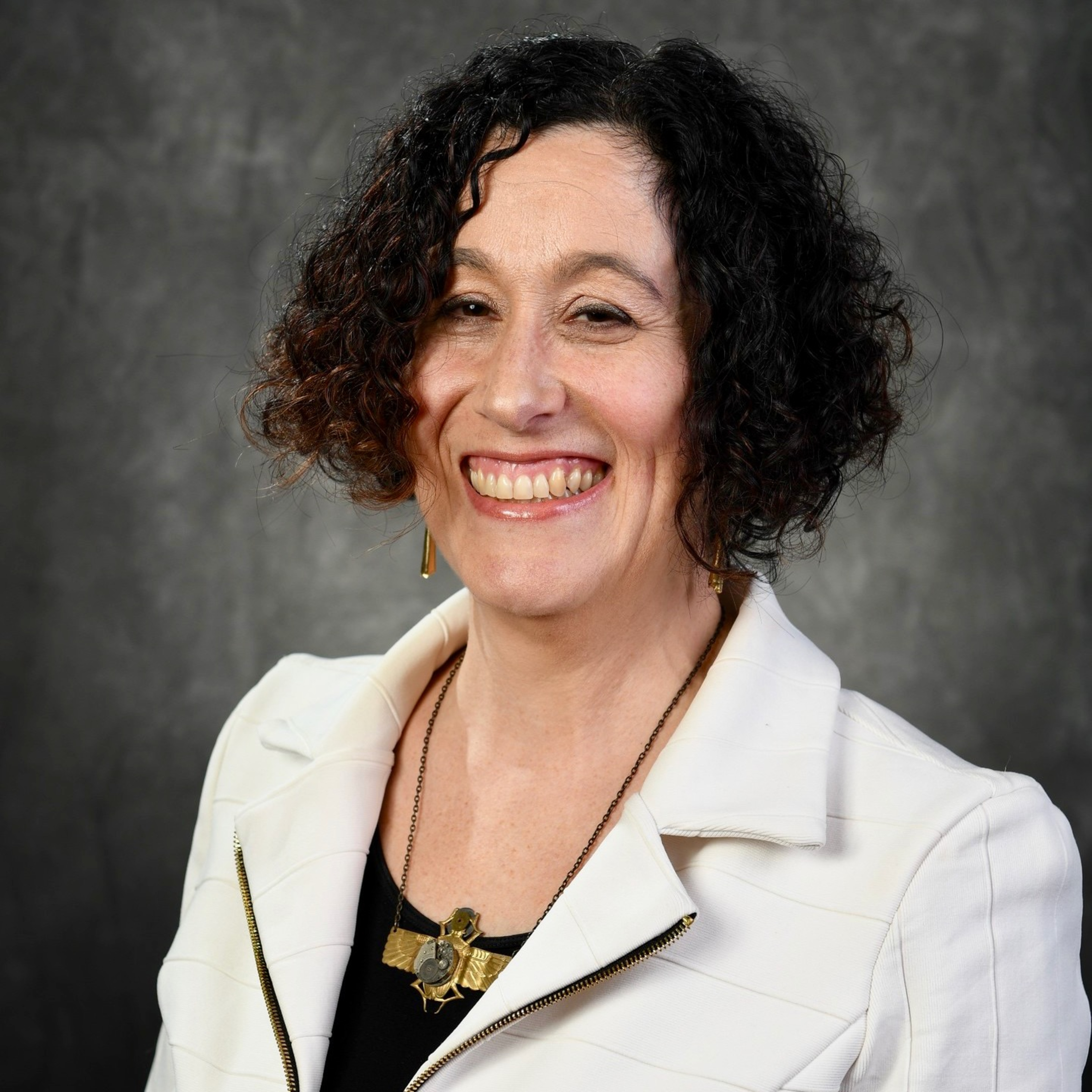 The Addiction PsychologistDr. Debra Kaysen - PTSD and Alcohol Use DisorderPosttraumatic Stress Disorder (PTSD) and Alcohol Use Disorder (AUD) often co-occur. A great deal of research has attempted to understand the nature of this relationship. Is PTSD a risk factor for AUD? Is high risk drinking a risk factor for PTSD? These questions can help us understand which of the two disorders to target first. Dr. Debra Kaysen talks about her research on treatments for co-occurring PTSD and AUD, focusing special attention toward state of the art science on ordering effects. Dr. Debra Kaysen is a clinical psychologist and Professor in the Department of Psychiatry and Behavioral Sciences at...2021-04-051h 14
The Addiction PsychologistDr. Debra Kaysen - PTSD and Alcohol Use DisorderPosttraumatic Stress Disorder (PTSD) and Alcohol Use Disorder (AUD) often co-occur. A great deal of research has attempted to understand the nature of this relationship. Is PTSD a risk factor for AUD? Is high risk drinking a risk factor for PTSD? These questions can help us understand which of the two disorders to target first. Dr. Debra Kaysen talks about her research on treatments for co-occurring PTSD and AUD, focusing special attention toward state of the art science on ordering effects. Dr. Debra Kaysen is a clinical psychologist and Professor in the Department of Psychiatry and Behavioral Sciences at...2021-04-051h 14 The Addiction PsychologistLaura Lesnewich - Biomarkers of AUDBiomarkers are objective signs or indications of a clinical state which can be measured reliably and accurately. Biomarkers are important because they can reveal mechanisms of behavior and help inform treatments. Laura Lesnewich talks about Biomarkers for Alcohol Use Disorder and her work identifying Biomarkers related to executive functioning deficits. Laura is a Doctoral candidate in Clinical Psychology at Rutgers and a Predoctoral intern at the Coatesville VA Medical Center. 2021-03-231h 04
The Addiction PsychologistLaura Lesnewich - Biomarkers of AUDBiomarkers are objective signs or indications of a clinical state which can be measured reliably and accurately. Biomarkers are important because they can reveal mechanisms of behavior and help inform treatments. Laura Lesnewich talks about Biomarkers for Alcohol Use Disorder and her work identifying Biomarkers related to executive functioning deficits. Laura is a Doctoral candidate in Clinical Psychology at Rutgers and a Predoctoral intern at the Coatesville VA Medical Center. 2021-03-231h 04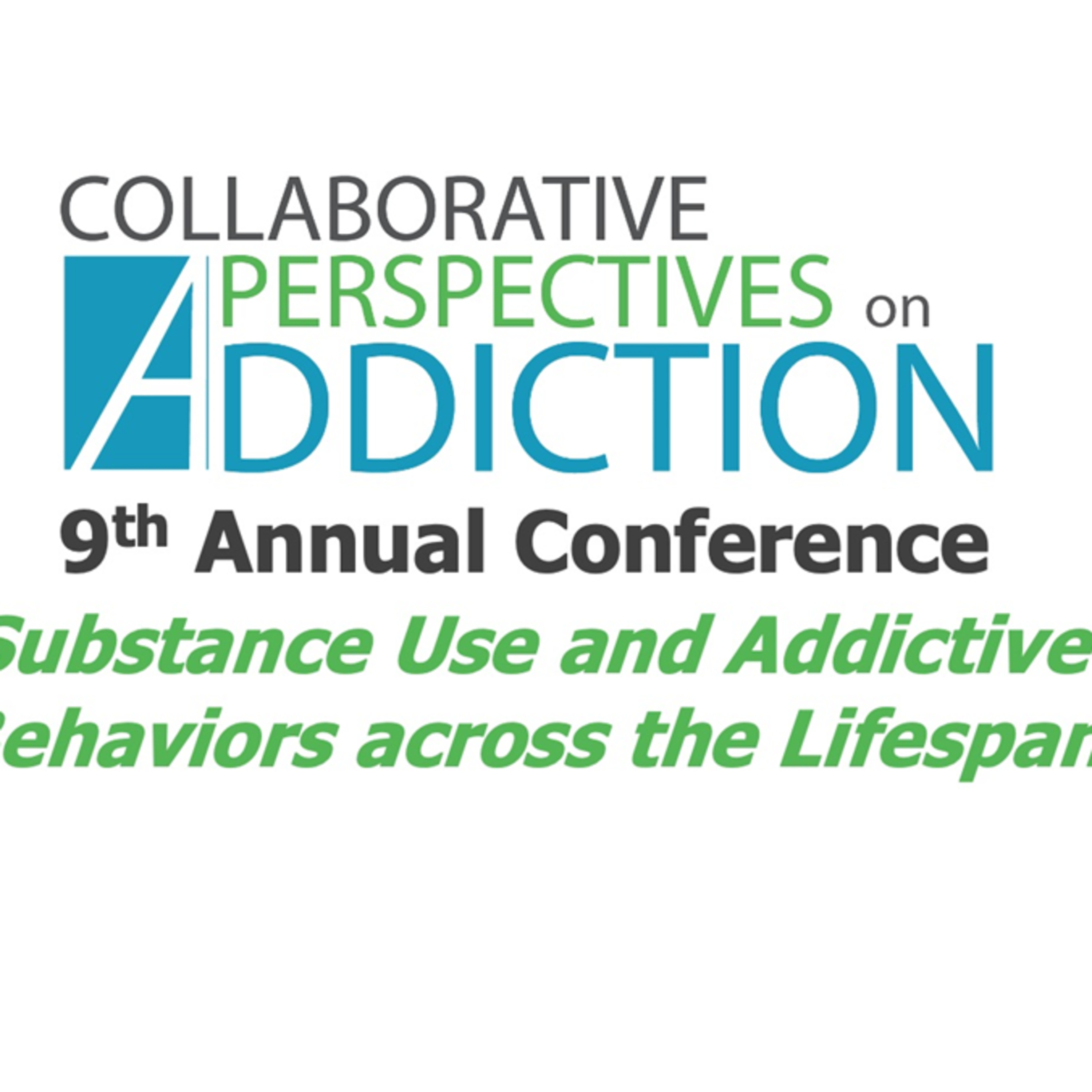 The Addiction PsychologistCPA 2021 Poster SessionListen to the future voices of addiction research. Seven students/ECRs discuss their excellent work which will also be presented live, during CPA 2021 from March 17-19. All interviewees were winners of the CPA registration award. Primary presenters, poster titles, and timestamps for posters below. Registration is still open: https://addictionpsychology.org/cpa
Neo Gebru (1:48-10:20) - “That’s Pot Culture Right There”: Purchasing Behaviors of Recreational Marijuana Users
Hallie Jordan: (10:20-18:55) - Psychometric Validation of the Protective Drinking Practices Scale in a National Sample of Students
Dr. Jenni Teeters (18:55-26:24) - A Mobile-phone Based...2021-03-1555 min
The Addiction PsychologistCPA 2021 Poster SessionListen to the future voices of addiction research. Seven students/ECRs discuss their excellent work which will also be presented live, during CPA 2021 from March 17-19. All interviewees were winners of the CPA registration award. Primary presenters, poster titles, and timestamps for posters below. Registration is still open: https://addictionpsychology.org/cpa
Neo Gebru (1:48-10:20) - “That’s Pot Culture Right There”: Purchasing Behaviors of Recreational Marijuana Users
Hallie Jordan: (10:20-18:55) - Psychometric Validation of the Protective Drinking Practices Scale in a National Sample of Students
Dr. Jenni Teeters (18:55-26:24) - A Mobile-phone Based...2021-03-1555 min The Addiction PsychologistDr. Lorraine Collins - Ecological Momentary Assessment and Cannabis UseA great deal of the literature delineating the experience of addiction uses cross-sectional survey data or longitudinal data separated by wide gaps of time. Although this research is critical and is useful for answer certain questions, these research designs are unable to answer certain questions, such as about proximal contextual factors associated with within-person differences in substance use, or about psychological processes that shift moment to moment that may increase risk of substance engagement. Dr. Lorraine Collins talks about her seminal work applying ecological momentary assessment methodologies to alcohol and cannabis. Dr. Lorraine Collins is the Associate Dean for...2021-03-081h 14
The Addiction PsychologistDr. Lorraine Collins - Ecological Momentary Assessment and Cannabis UseA great deal of the literature delineating the experience of addiction uses cross-sectional survey data or longitudinal data separated by wide gaps of time. Although this research is critical and is useful for answer certain questions, these research designs are unable to answer certain questions, such as about proximal contextual factors associated with within-person differences in substance use, or about psychological processes that shift moment to moment that may increase risk of substance engagement. Dr. Lorraine Collins talks about her seminal work applying ecological momentary assessment methodologies to alcohol and cannabis. Dr. Lorraine Collins is the Associate Dean for...2021-03-081h 14 The Addiction PsychologistDezarie Moskal - Pain and Substance UseAlleviation of pain, whether emotional or physical, is among the most common reasons for substance use. Despite this, very little experimental work has been done to delineate a causal effect of pain. Dezarie Moskal talks about her experimental work on the effect of pain on substance use and a recent meta-analysis on the effect of endocannabinoids on the alleviation of pain. Finally, she discusses the role of psychotherapy in alleviating pain. Dez is a doctoral candidate in clinical psychology at Syracuse University and a predoctoral internship at the VA Maryland Health Care System/University of Maryland School of Medicine...2021-02-221h 01
The Addiction PsychologistDezarie Moskal - Pain and Substance UseAlleviation of pain, whether emotional or physical, is among the most common reasons for substance use. Despite this, very little experimental work has been done to delineate a causal effect of pain. Dezarie Moskal talks about her experimental work on the effect of pain on substance use and a recent meta-analysis on the effect of endocannabinoids on the alleviation of pain. Finally, she discusses the role of psychotherapy in alleviating pain. Dez is a doctoral candidate in clinical psychology at Syracuse University and a predoctoral internship at the VA Maryland Health Care System/University of Maryland School of Medicine...2021-02-221h 01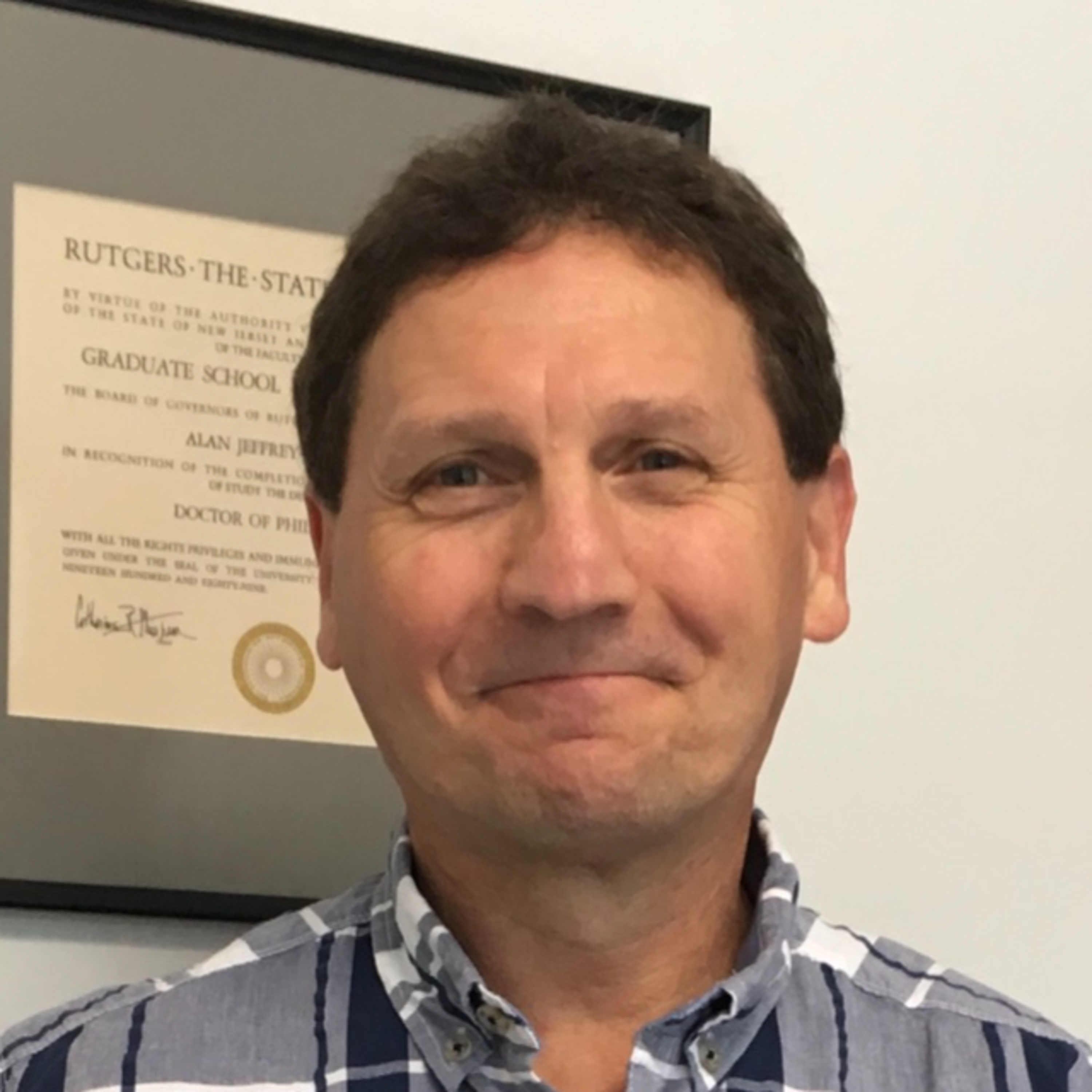 The Addiction PsychologistDr. Alan Budney - Cannabis LegalizationIn December of 2020, the US House of Representatives passed the Marijuana Opportunities Reinvestment and Expungement (MORE) act, which removes marijuana from the list of scheduled substances under the Controlled Substances Act and eliminates criminal penalties for an individual who manufactures, distributes, or possesses marijuana. Although the bill is unlikely to survive the Senate, it seems to be a matter of time before some version of this bill does pass. There has been growing interest in decriminalizing and legalizing cannabis in on the state level in the United States and in many countries around the world, and many around the...2021-02-0857 min
The Addiction PsychologistDr. Alan Budney - Cannabis LegalizationIn December of 2020, the US House of Representatives passed the Marijuana Opportunities Reinvestment and Expungement (MORE) act, which removes marijuana from the list of scheduled substances under the Controlled Substances Act and eliminates criminal penalties for an individual who manufactures, distributes, or possesses marijuana. Although the bill is unlikely to survive the Senate, it seems to be a matter of time before some version of this bill does pass. There has been growing interest in decriminalizing and legalizing cannabis in on the state level in the United States and in many countries around the world, and many around the...2021-02-0857 min The Addiction PsychologistKyle Walters - Self-regulation and Substance UseSelf control is thought to be closely associated with the ability to abstain or regulate substance use and is just one aspect of self-regulation, or the ability to organize behavior toward a goal. Many have suggested that self-regulation is damaged in those with chronic patterns of harmful substance use. However, it has also been noted that substance use itself is a highly goal directed behavior and requires self-regulation. Kyle Walters discusses his work on the interaction between self-regulation and the environment and suggests that this relationship may not be as simple as we once thought. Kyle also briefly discusses...2021-01-2553 min
The Addiction PsychologistKyle Walters - Self-regulation and Substance UseSelf control is thought to be closely associated with the ability to abstain or regulate substance use and is just one aspect of self-regulation, or the ability to organize behavior toward a goal. Many have suggested that self-regulation is damaged in those with chronic patterns of harmful substance use. However, it has also been noted that substance use itself is a highly goal directed behavior and requires self-regulation. Kyle Walters discusses his work on the interaction between self-regulation and the environment and suggests that this relationship may not be as simple as we once thought. Kyle also briefly discusses...2021-01-2553 min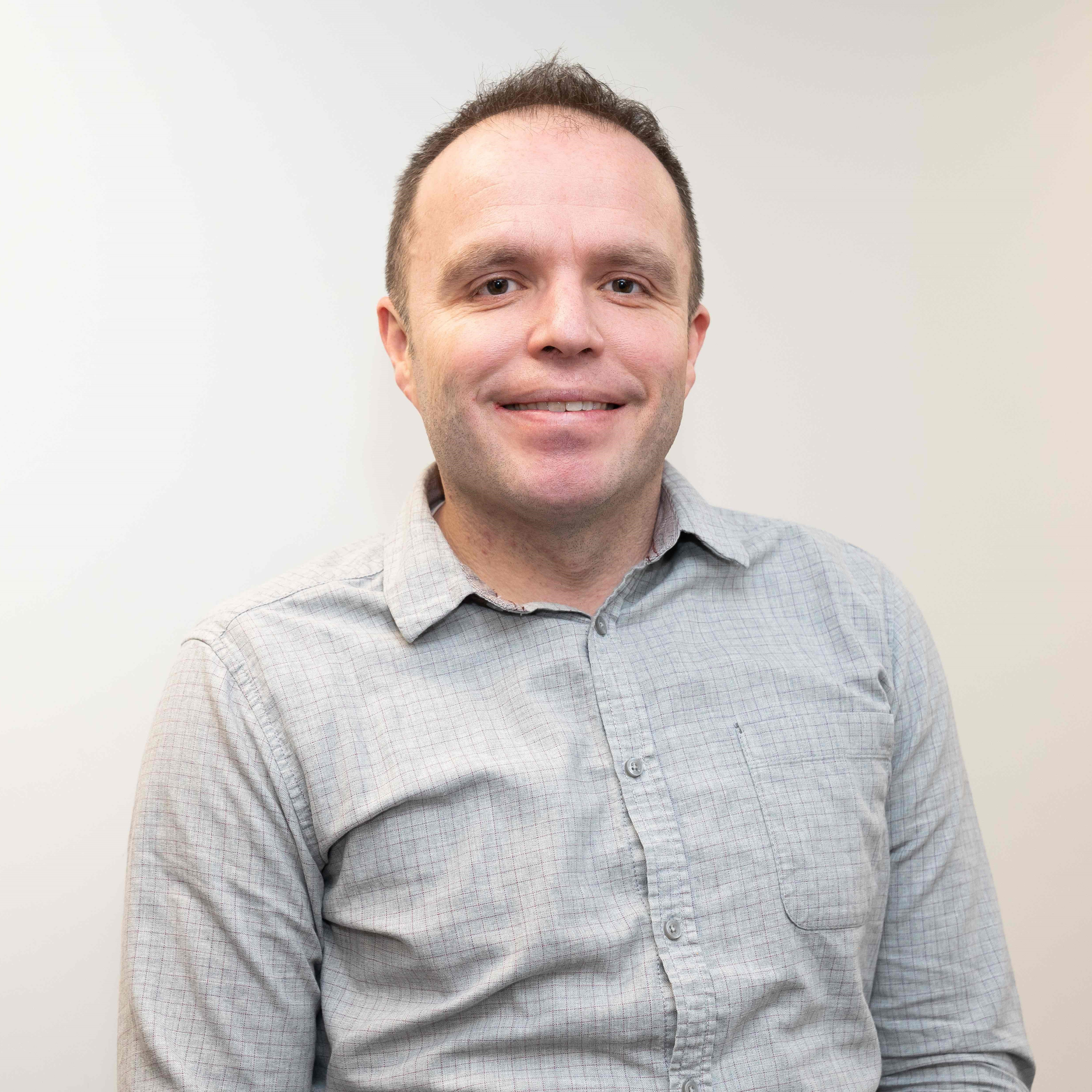 The Addiction PsychologistDr. Matt Field - Compulsive and Choice Models of AddictionThere are two competing paradigms attempting to explain the phenomena of addiction: Addiction as compulsion and addiction as choice. The compulsion model describes addiction as a brain disease in which alcohol and drug use cause neuroadaptations, resulting in uncontrolled drug seeking behavior. The choice model describes addiction as pathology of reinforcement that is contextually dependent upon the availability of meaningful and rewarding alternatives in the choice environment. Dr. Matt Field describes each model and their respective bodies of research. Dr. Matt Field is a Professor in the Department of Psychology at University of Sheffield.
2021-01-111h 10
The Addiction PsychologistDr. Matt Field - Compulsive and Choice Models of AddictionThere are two competing paradigms attempting to explain the phenomena of addiction: Addiction as compulsion and addiction as choice. The compulsion model describes addiction as a brain disease in which alcohol and drug use cause neuroadaptations, resulting in uncontrolled drug seeking behavior. The choice model describes addiction as pathology of reinforcement that is contextually dependent upon the availability of meaningful and rewarding alternatives in the choice environment. Dr. Matt Field describes each model and their respective bodies of research. Dr. Matt Field is a Professor in the Department of Psychology at University of Sheffield.
2021-01-111h 10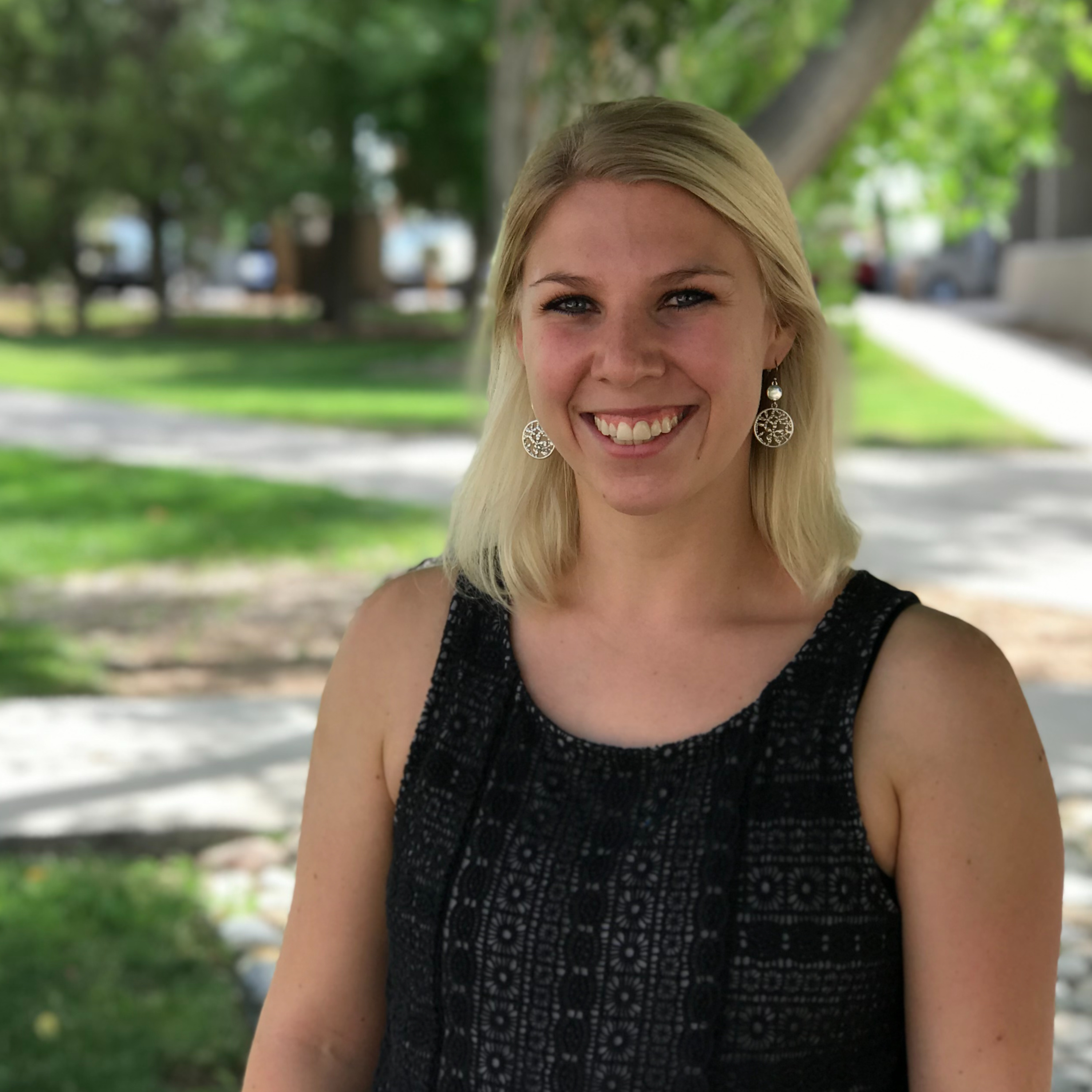 The Addiction PsychologistTori Votaw - Identifying Addiction Phenotypes to Inform Precision MedicineResearch and theory have led to the development of empirically-supported options for SUD treatment, both psychosocial and pharmacological. However, these treatments only have moderate efficacy/effectiveness, and some aspects of treatments may be more implicated for some than others. Tori Votaw talks about precision medicine, which is determining which treatments work best for subgroups of individuals. Specifically, Tori discusses her work in understanding phenotypes of addiction such as negative emotionality and executive functioning that may help classify individuals into different specific treatment approaches. Tori Votaw is a graduate student and T32 predoctoral fellow in the Department of Psychology at t...2020-12-2853 min
The Addiction PsychologistTori Votaw - Identifying Addiction Phenotypes to Inform Precision MedicineResearch and theory have led to the development of empirically-supported options for SUD treatment, both psychosocial and pharmacological. However, these treatments only have moderate efficacy/effectiveness, and some aspects of treatments may be more implicated for some than others. Tori Votaw talks about precision medicine, which is determining which treatments work best for subgroups of individuals. Specifically, Tori discusses her work in understanding phenotypes of addiction such as negative emotionality and executive functioning that may help classify individuals into different specific treatment approaches. Tori Votaw is a graduate student and T32 predoctoral fellow in the Department of Psychology at t...2020-12-2853 min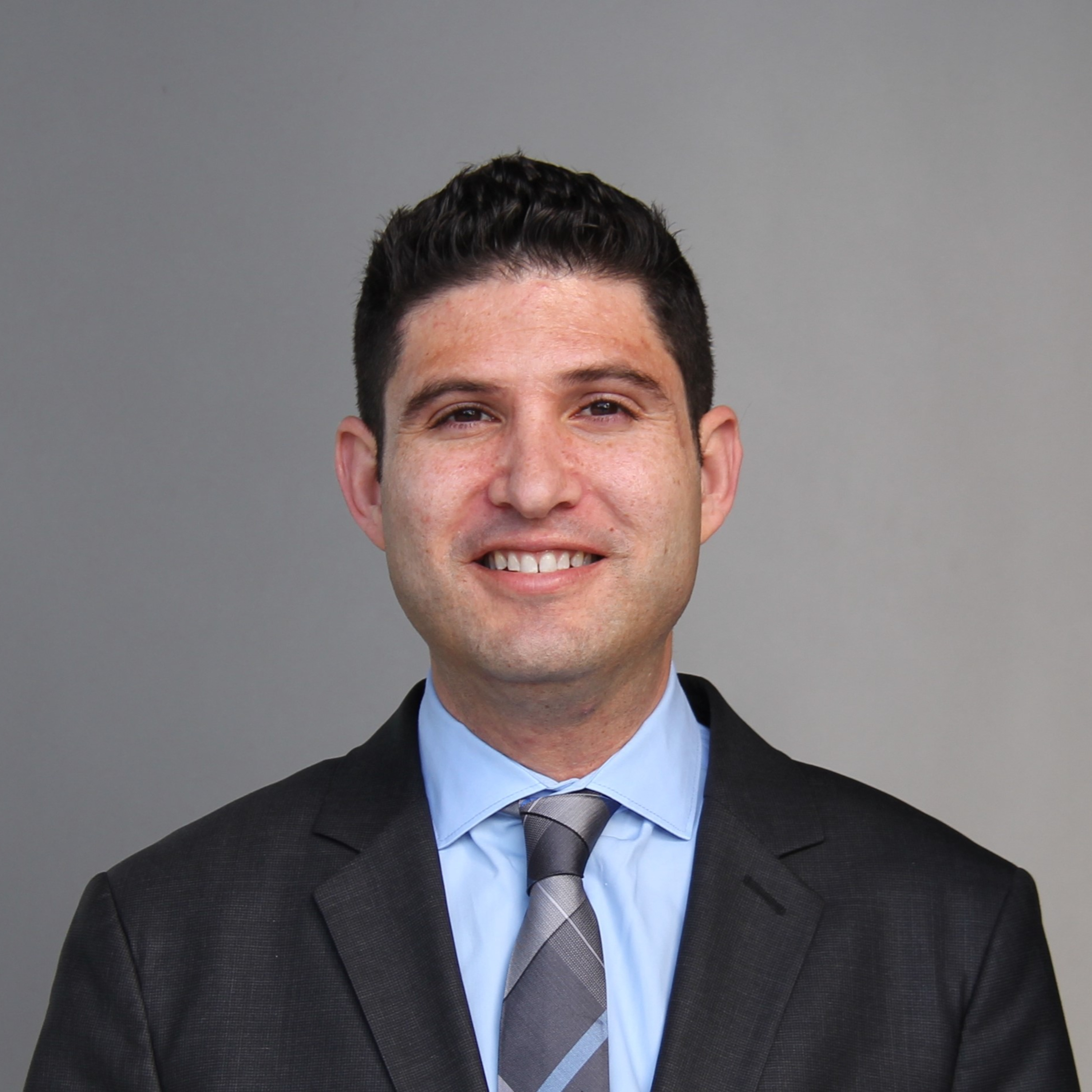 The Addiction PsychologistDr. Adam Leventhal - E-cigarettes and VapingE-cigarettes have increased in prevalence over the past decade and provided a powerful alternative to tobacco products like cigarettes. E-cigarettes have the potential to be addictive in part because qualities that are typically inherent to a substance (e.g., flavor, "harshness") can actually be modified to increase the reinforcing efficacy of the nicotine from the e-cigarettes. However, the full picture of both acute and chronic consequences are yet to be understood. Dr. Adam Leventhal provides an overview of the science of e-cigarettes and vaping, including what we now about it's harm and addictive potential. He also discusses his work r...2020-12-071h 04
The Addiction PsychologistDr. Adam Leventhal - E-cigarettes and VapingE-cigarettes have increased in prevalence over the past decade and provided a powerful alternative to tobacco products like cigarettes. E-cigarettes have the potential to be addictive in part because qualities that are typically inherent to a substance (e.g., flavor, "harshness") can actually be modified to increase the reinforcing efficacy of the nicotine from the e-cigarettes. However, the full picture of both acute and chronic consequences are yet to be understood. Dr. Adam Leventhal provides an overview of the science of e-cigarettes and vaping, including what we now about it's harm and addictive potential. He also discusses his work r...2020-12-071h 04 The Addiction PsychologistCassie Boness - Diagnostic Issues in Alcohol Use DisorderAlcohol use is a burden on the healthcare system and is among the leading causes of preventable deaths in the United States. There are eleven possible Alcohol use Disorder (AUD) symptoms and only two are required, resulting in a wide range of possible combinations of symptoms and thus widely divergent profiles of individuals with AUD. Further, not all of the AUD symptoms are equally severe, and two individuals with two symptoms each may have completely different levels of severity. Despite these issues, many of our research and clinical decisions are made based on AUD clinical cutoffs. Cassie Boness talks a...2020-11-301h 05
The Addiction PsychologistCassie Boness - Diagnostic Issues in Alcohol Use DisorderAlcohol use is a burden on the healthcare system and is among the leading causes of preventable deaths in the United States. There are eleven possible Alcohol use Disorder (AUD) symptoms and only two are required, resulting in a wide range of possible combinations of symptoms and thus widely divergent profiles of individuals with AUD. Further, not all of the AUD symptoms are equally severe, and two individuals with two symptoms each may have completely different levels of severity. Despite these issues, many of our research and clinical decisions are made based on AUD clinical cutoffs. Cassie Boness talks a...2020-11-301h 05 The Addiction PsychologistDr. Ayana Jordan - Racism and Substance Use in AmericaRacial disparities in prevalence rates of harmful substance use can largely be attributed to social determinants of health, which are perpetuated by racist policies that have been implemented over the past century. The clearest example can be found in the policies related to Nixon's War on Drugs, which criminalized drug use, increased drug enforcement forces across the nation, and specifically targeted Black communities. More generally, the definition of addiction and its recovery has been determined by white scientists, religious figures, and politicians without regard to the Black community or other groups. Dr. Ayana Jordan discusses racist drug policy and...2020-11-091h 21
The Addiction PsychologistDr. Ayana Jordan - Racism and Substance Use in AmericaRacial disparities in prevalence rates of harmful substance use can largely be attributed to social determinants of health, which are perpetuated by racist policies that have been implemented over the past century. The clearest example can be found in the policies related to Nixon's War on Drugs, which criminalized drug use, increased drug enforcement forces across the nation, and specifically targeted Black communities. More generally, the definition of addiction and its recovery has been determined by white scientists, religious figures, and politicians without regard to the Black community or other groups. Dr. Ayana Jordan discusses racist drug policy and...2020-11-091h 21 The Addiction PsychologistKeanan Joyner - Increasing Representation for BIPOC ScholarsThe academy systematically excludes members of certain groups, leading to underrepresentation of those who identify as of Black, indigenous, and people of color. Keanan Joyner discusses the leaky pipeline and provides specific actionable steps that can help increase representation in your academic department. Keanan Joyner is a doctoral student at Florida State University and a Ford Fellow.2020-11-0234 min
The Addiction PsychologistKeanan Joyner - Increasing Representation for BIPOC ScholarsThe academy systematically excludes members of certain groups, leading to underrepresentation of those who identify as of Black, indigenous, and people of color. Keanan Joyner discusses the leaky pipeline and provides specific actionable steps that can help increase representation in your academic department. Keanan Joyner is a doctoral student at Florida State University and a Ford Fellow.2020-11-0234 min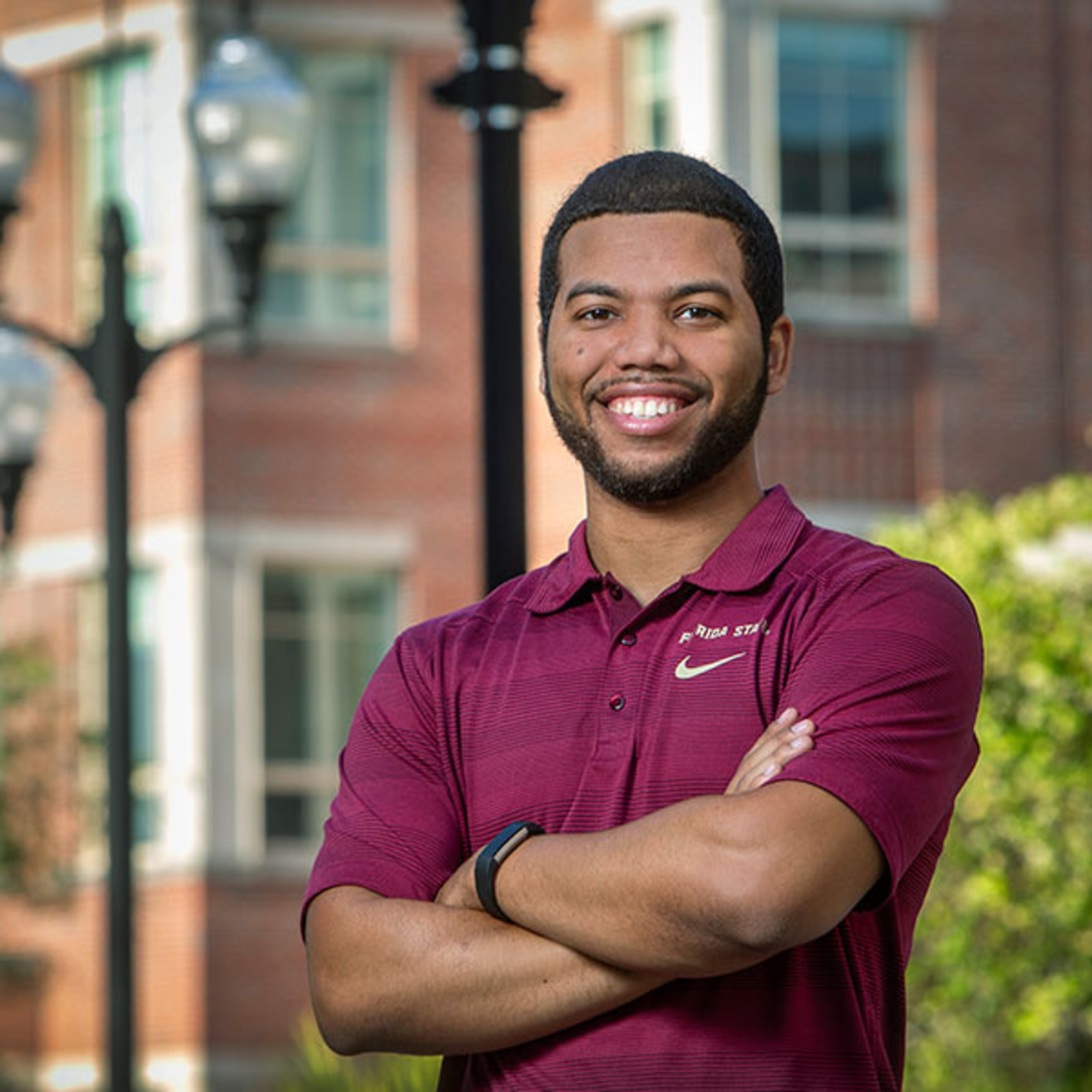 The Addiction PsychologistKeanan Joyner - Alternative Rewards and Multiple MethodsSome research demonstrates that rats will self-administer dangerously high levels of drugs under certain schedules of reinforcement. However, much of this research has been done under conditions of depravity, in which the rat does not have any access to alternatives. Humans almost always make choices between a menu of options, suggesting a different, more dynamic choice context with competing reinforcers. Keanan discusses his work in this area, in addition to the importance of confirming self-report findings by using multimethod approaches, such as psychophysiology. Keanan Joyner is a doctoral student at Florida State University and a Ford Fellow. 2020-10-2659 min
The Addiction PsychologistKeanan Joyner - Alternative Rewards and Multiple MethodsSome research demonstrates that rats will self-administer dangerously high levels of drugs under certain schedules of reinforcement. However, much of this research has been done under conditions of depravity, in which the rat does not have any access to alternatives. Humans almost always make choices between a menu of options, suggesting a different, more dynamic choice context with competing reinforcers. Keanan discusses his work in this area, in addition to the importance of confirming self-report findings by using multimethod approaches, such as psychophysiology. Keanan Joyner is a doctoral student at Florida State University and a Ford Fellow. 2020-10-2659 min The Addiction PsychologistDr. Katie Witkiewitz - Non-abstinent RecoveryMost definitions of recovery from addiction require abstinence from the problem substance. Dr. Katie Witkiewitz discusses the limitations of abstinence-based models of recovery and describe why non-abstinent models may have a positive public health impact. Namely, Katie's research suggests that many people regain functioning in interpersonal, occupational, and health domains without achieving full abstinence, and that these definitions actually prevent people from seeking treatment. Katie outlines the benefits of incorporating non-abstinent recovery options alongside the dominant abstinent model, and also shares NIAAA's preliminary definition of recovery from alcohol. Dr. Katie Witkiewitz is the Regent's Professor in the Department of P...2020-10-121h 14
The Addiction PsychologistDr. Katie Witkiewitz - Non-abstinent RecoveryMost definitions of recovery from addiction require abstinence from the problem substance. Dr. Katie Witkiewitz discusses the limitations of abstinence-based models of recovery and describe why non-abstinent models may have a positive public health impact. Namely, Katie's research suggests that many people regain functioning in interpersonal, occupational, and health domains without achieving full abstinence, and that these definitions actually prevent people from seeking treatment. Katie outlines the benefits of incorporating non-abstinent recovery options alongside the dominant abstinent model, and also shares NIAAA's preliminary definition of recovery from alcohol. Dr. Katie Witkiewitz is the Regent's Professor in the Department of P...2020-10-121h 14 The Addiction PsychologistDr. Noel Vest - Fair Chances and Collegiate Recovery ProgramsSystematic barriers can prevent educational and occupational attainment for those with substantive substance use or incarceration histories. For example, the Violent Crime Control and Law Enforcement Act of 1994 prevents those with a felony from receiving a Pell grant, effectively preventing college entry for most. Further, reporting that you have been arrested and/or convicted of a crime on college applications prevents many from applying, even though applications are rarely rejected for this purpose. Dr. Noel Vest talks about his lived experience through substance use, prison, and his journey into the academy, which has resulted in two primary areas of...2020-09-071h 01
The Addiction PsychologistDr. Noel Vest - Fair Chances and Collegiate Recovery ProgramsSystematic barriers can prevent educational and occupational attainment for those with substantive substance use or incarceration histories. For example, the Violent Crime Control and Law Enforcement Act of 1994 prevents those with a felony from receiving a Pell grant, effectively preventing college entry for most. Further, reporting that you have been arrested and/or convicted of a crime on college applications prevents many from applying, even though applications are rarely rejected for this purpose. Dr. Noel Vest talks about his lived experience through substance use, prison, and his journey into the academy, which has resulted in two primary areas of...2020-09-071h 01 The Addiction PsychologistDrs. Seema Clifasefi & Susan Collins - Harm ReductionAbstinence models have historically dominated definitions of recovery. However, research suggests that there is not necessarily a 1:1 ratio of substance use to problems, highlighting the importance of targeting harm rather than consumption. In recent decades, harm reduction models of recovery and policy have increasingly gained traction. Drs. Seema Clifasefi & Susan Collins talk about the history and definition of harm reduction, and about how a harm reduction approach informs their research and policy application. They also discuss diversity initiatives being implemented in Division 50. Dr. Seema Clifasefi is an Associate Professor in the Department of Psychiatry and Behavioral Sciences at the...2020-08-141h 09
The Addiction PsychologistDrs. Seema Clifasefi & Susan Collins - Harm ReductionAbstinence models have historically dominated definitions of recovery. However, research suggests that there is not necessarily a 1:1 ratio of substance use to problems, highlighting the importance of targeting harm rather than consumption. In recent decades, harm reduction models of recovery and policy have increasingly gained traction. Drs. Seema Clifasefi & Susan Collins talk about the history and definition of harm reduction, and about how a harm reduction approach informs their research and policy application. They also discuss diversity initiatives being implemented in Division 50. Dr. Seema Clifasefi is an Associate Professor in the Department of Psychiatry and Behavioral Sciences at the...2020-08-141h 09 The Addiction PsychologistNIAAA/NIDA Student/ECR Poster Session - APA convention 2020Listen to the future voices of addiction research. Ten students/ECRs discuss their excellent work which will also be presented live, along with 23 others, on August 7, 2020 during the NIAAA/NIDA student/ECR poster session. Content ranges from psychometric analyses of new measures to policy-level decision making about harm reduction approaches, and everything in between. Primary presenters, poster titles, and timestamps for posters below.
Silvi Goldstein (3:44-8:44) - Cross-cultural validity of the SIP-2R for Indigenous and Black adults experiencing homelessness with alcohol use disorders
Rachelle Kromash (8:44-13:33) - Psychometric properties of the Illness Attitudes Scale among people with s...2020-08-0755 min
The Addiction PsychologistNIAAA/NIDA Student/ECR Poster Session - APA convention 2020Listen to the future voices of addiction research. Ten students/ECRs discuss their excellent work which will also be presented live, along with 23 others, on August 7, 2020 during the NIAAA/NIDA student/ECR poster session. Content ranges from psychometric analyses of new measures to policy-level decision making about harm reduction approaches, and everything in between. Primary presenters, poster titles, and timestamps for posters below.
Silvi Goldstein (3:44-8:44) - Cross-cultural validity of the SIP-2R for Indigenous and Black adults experiencing homelessness with alcohol use disorders
Rachelle Kromash (8:44-13:33) - Psychometric properties of the Illness Attitudes Scale among people with s...2020-08-0755 min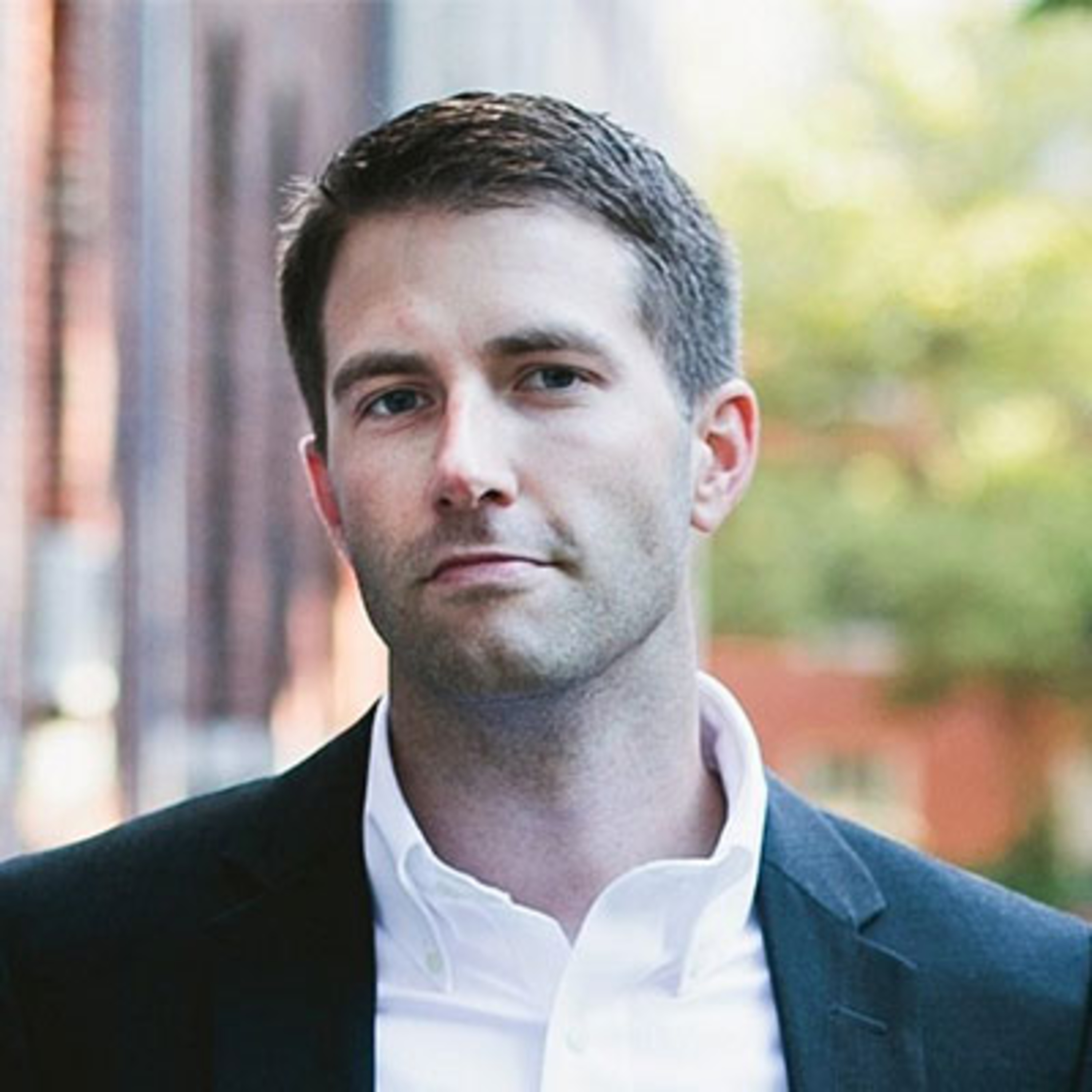 The Addiction PsychologistDr. Tyler Wray - Just-in-time InterventionsAlthough in-person treatment is beneficial, many clients need to use skills in moments (e.g., under conditions of emotional distress or craving) that can make effective skill utilization difficult. Dr. Tyler Wray talks about harnessing technology for just-in-time interventions to help "nudge" clients people towards effective behavior change. Importantly during the COVID-19 era, Tyler discusses remote enrollment and data collection related to these studies, which helps his team gain access to vulnerable and hard-to-reach populations. Dr. Tyler Wray is the Edens Family Chair in Healthcare Communications & Technology at the Brown University School of Public Health and leads the School's...2020-07-131h 05
The Addiction PsychologistDr. Tyler Wray - Just-in-time InterventionsAlthough in-person treatment is beneficial, many clients need to use skills in moments (e.g., under conditions of emotional distress or craving) that can make effective skill utilization difficult. Dr. Tyler Wray talks about harnessing technology for just-in-time interventions to help "nudge" clients people towards effective behavior change. Importantly during the COVID-19 era, Tyler discusses remote enrollment and data collection related to these studies, which helps his team gain access to vulnerable and hard-to-reach populations. Dr. Tyler Wray is the Edens Family Chair in Healthcare Communications & Technology at the Brown University School of Public Health and leads the School's...2020-07-131h 05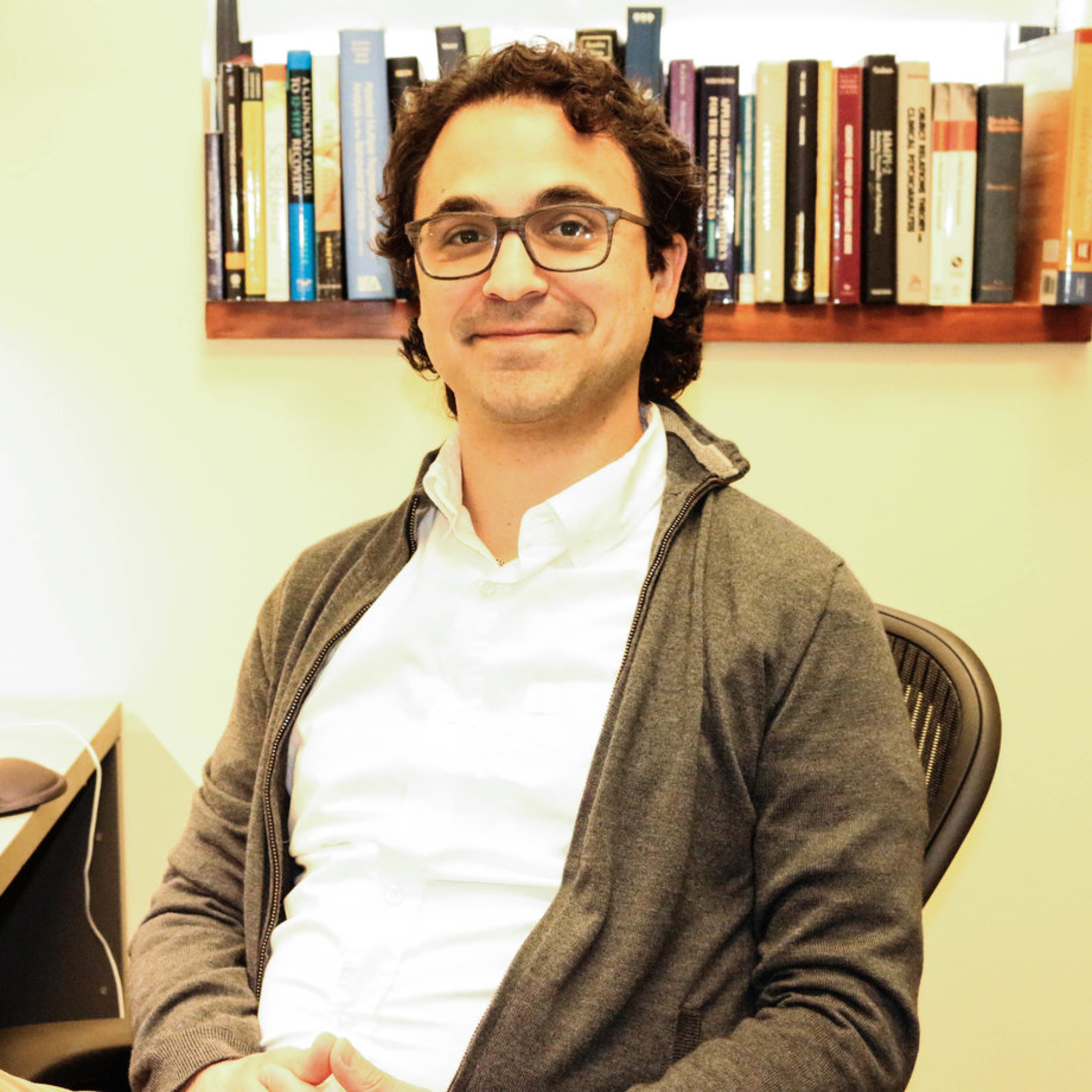 The Addiction PsychologistDr. Brandon Bergman, Part 2: Online Recovery-Support ServicesDr. Brandon Bergman continues his discussion about recovery support services and communities available through the Internet. Dr. Brandon Bergman is an Assistant Professor at Harvard Medical School and the Associate Director of the Recovery Research Institute, which is housed in the Center for Addiction Medicine at Massachusetts General Hospital. Learn more about their mission at recoveryanswers.org.2020-06-0248 min
The Addiction PsychologistDr. Brandon Bergman, Part 2: Online Recovery-Support ServicesDr. Brandon Bergman continues his discussion about recovery support services and communities available through the Internet. Dr. Brandon Bergman is an Assistant Professor at Harvard Medical School and the Associate Director of the Recovery Research Institute, which is housed in the Center for Addiction Medicine at Massachusetts General Hospital. Learn more about their mission at recoveryanswers.org.2020-06-0248 min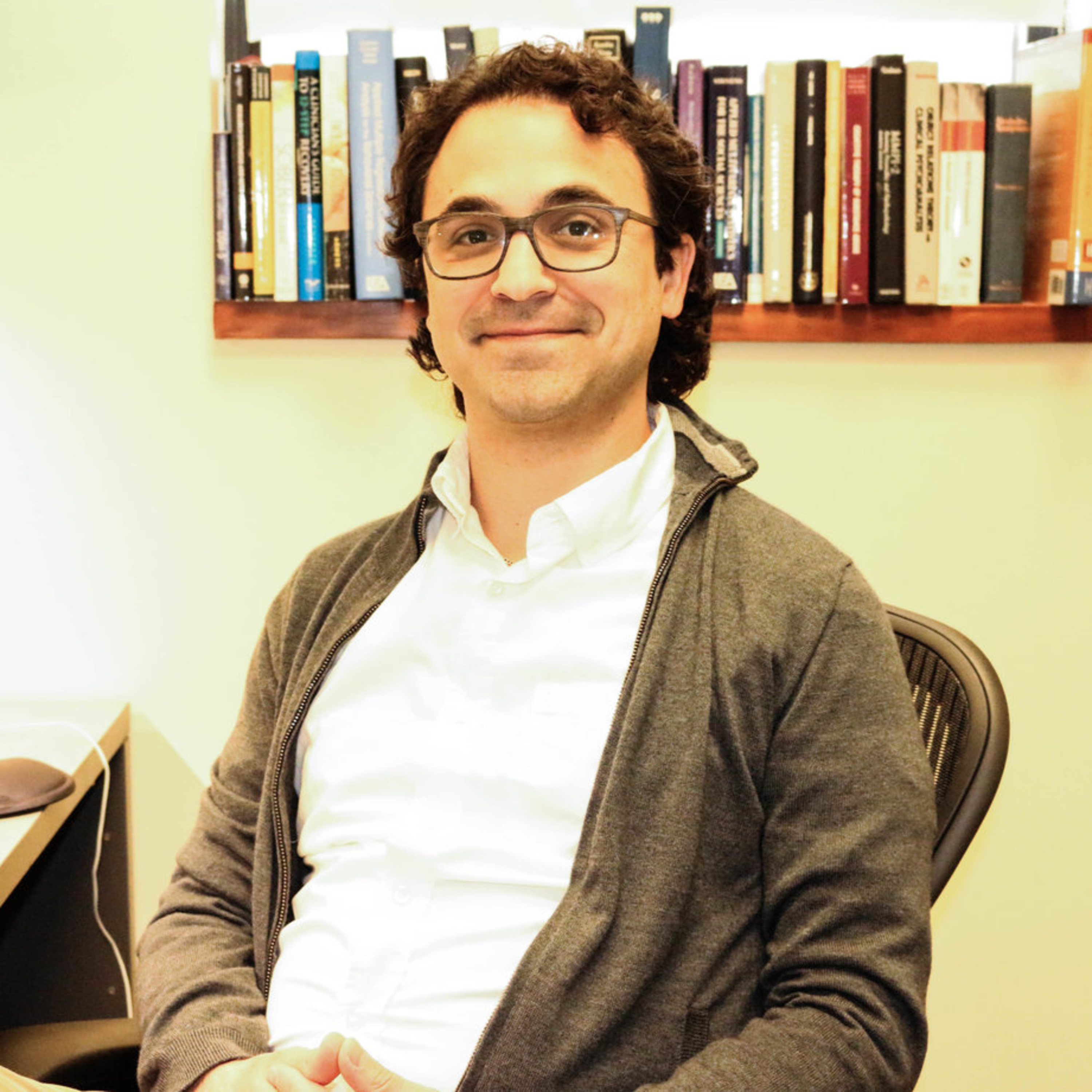 The Addiction PsychologistDr. Brandon Bergman, Part 1 - Treatment versus Recovery-Support ServicesPhysical distancing recommendations from the COVID-19 pandemic has complicated addiction recovery, forcing many addiction recovery support services online for the foreseeable future. In the first half of our interview with Brandon Bergman, he discusses the difference between addiction treatment and recovery-support services, setting the stage for a discussion about online recovery support communities (Episode 1 Part 2). Dr. Brandon Bergman is an Assistant Professor at Harvard Medical School and the Associate Director of the Recovery Research Institute, which is housed in the Center for Addiction Medicine at Massachusetts General Hospital. Learn more about their mission at recoveryanswers.org.2020-06-0238 min
The Addiction PsychologistDr. Brandon Bergman, Part 1 - Treatment versus Recovery-Support ServicesPhysical distancing recommendations from the COVID-19 pandemic has complicated addiction recovery, forcing many addiction recovery support services online for the foreseeable future. In the first half of our interview with Brandon Bergman, he discusses the difference between addiction treatment and recovery-support services, setting the stage for a discussion about online recovery support communities (Episode 1 Part 2). Dr. Brandon Bergman is an Assistant Professor at Harvard Medical School and the Associate Director of the Recovery Research Institute, which is housed in the Center for Addiction Medicine at Massachusetts General Hospital. Learn more about their mission at recoveryanswers.org.2020-06-0238 min